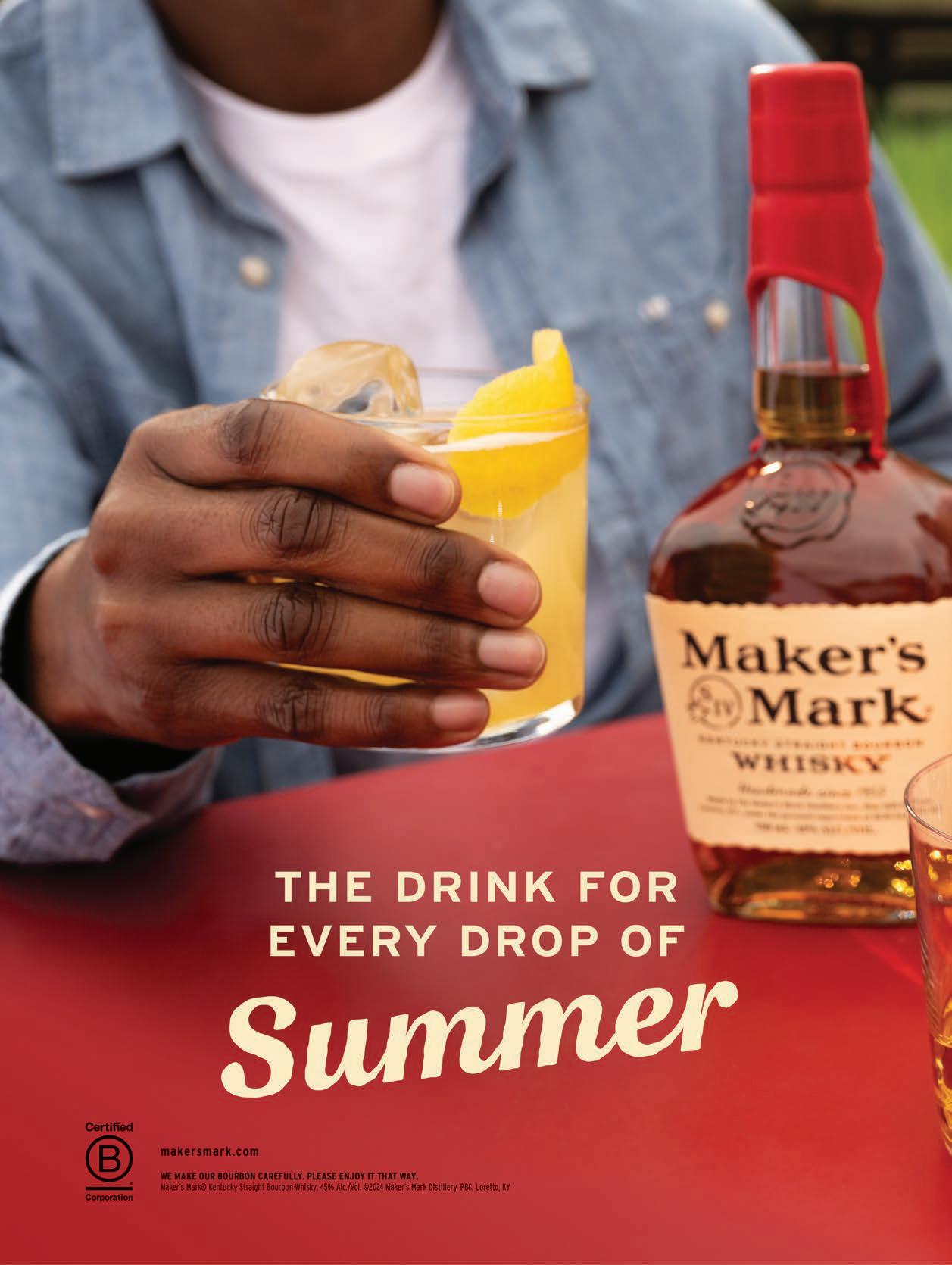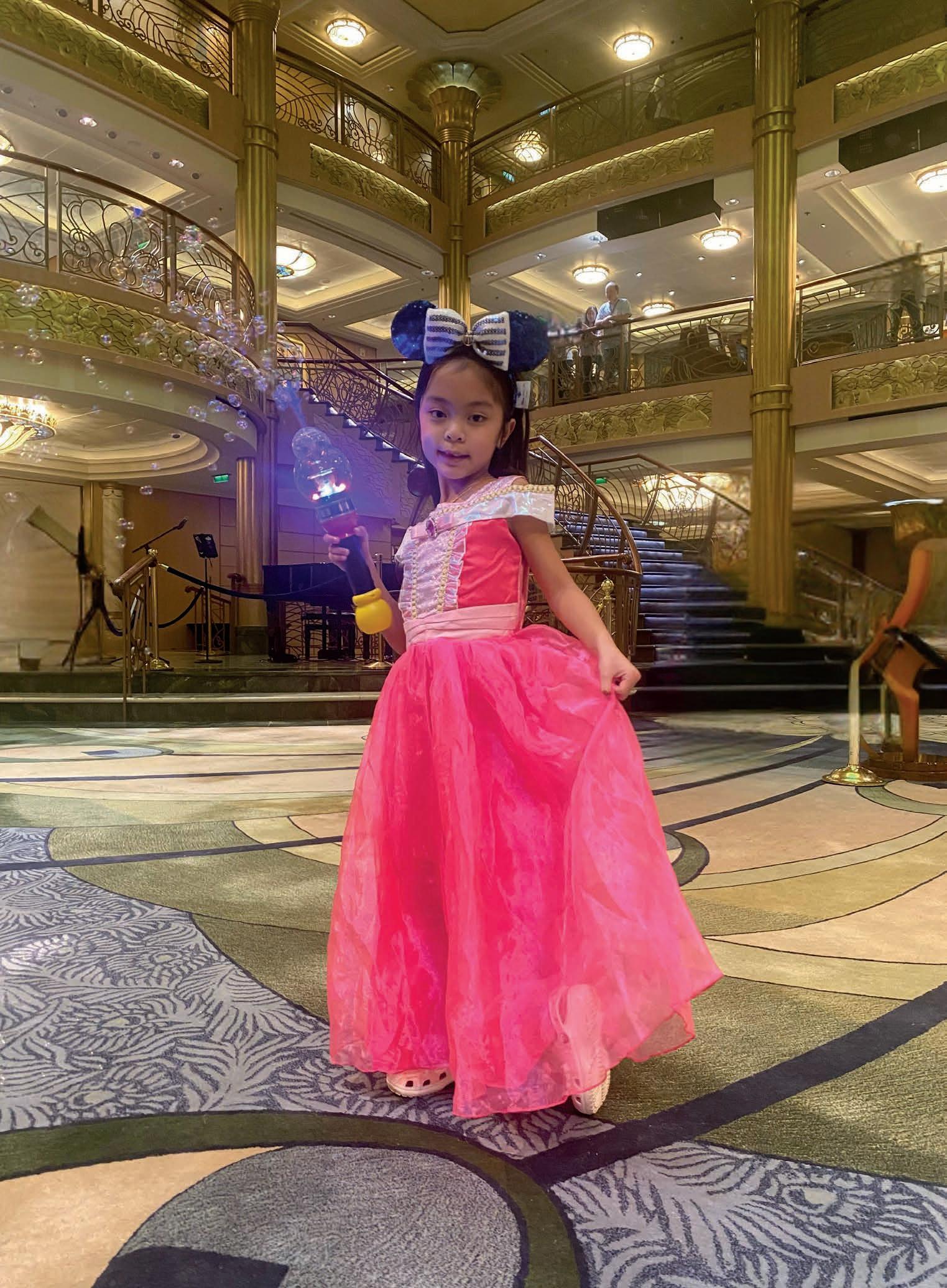MUSIC OPENS DOORS FOR CONNECTION
LEFTIST BAND MARCHES TO THEIR OWN BEAT
U+I MAKES ART ACCESSIBLE

MUSIC OPENS DOORS FOR CONNECTION
LEFTIST BAND MARCHES TO THEIR OWN BEAT
U+I MAKES ART ACCESSIBLE
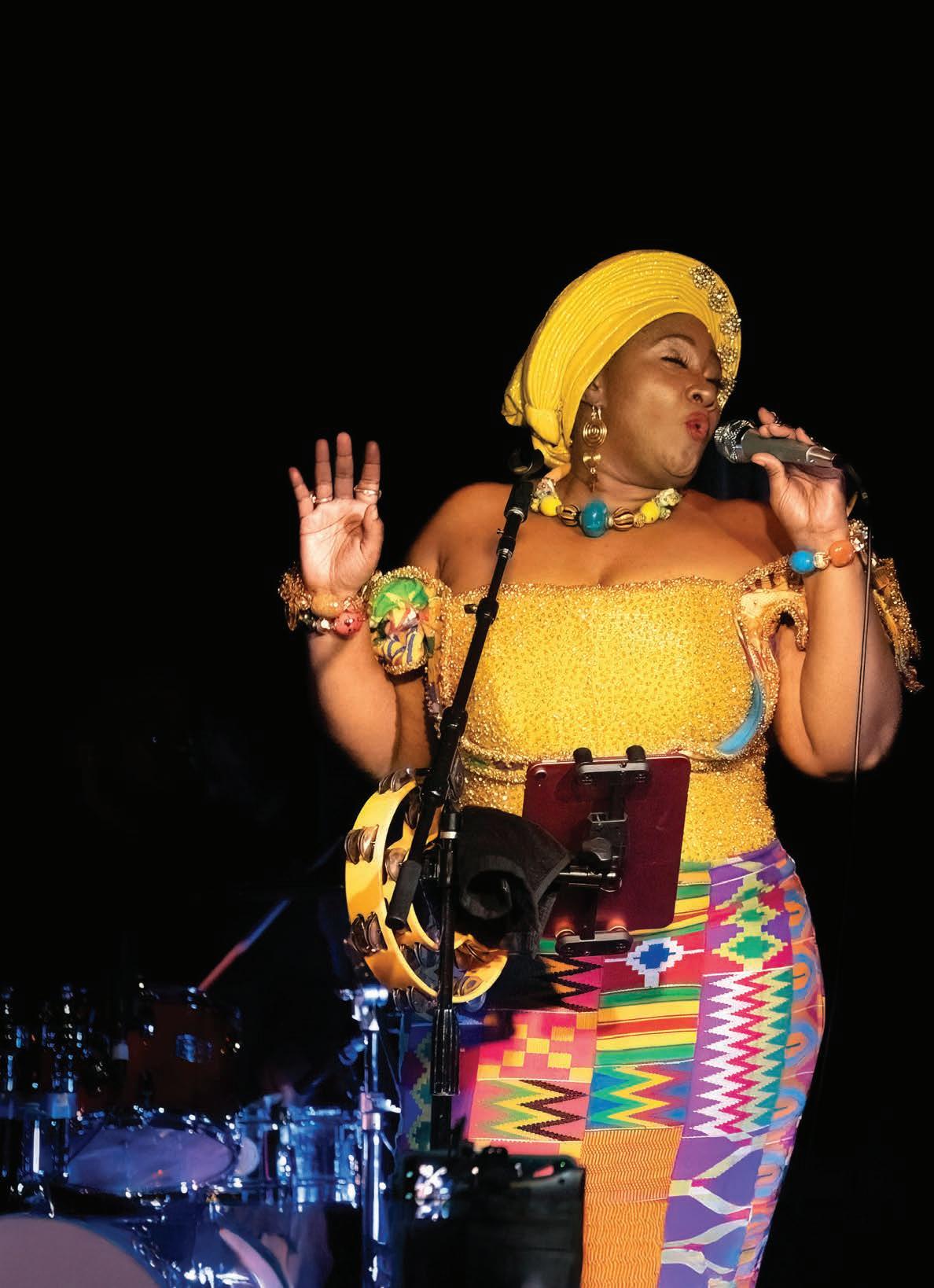
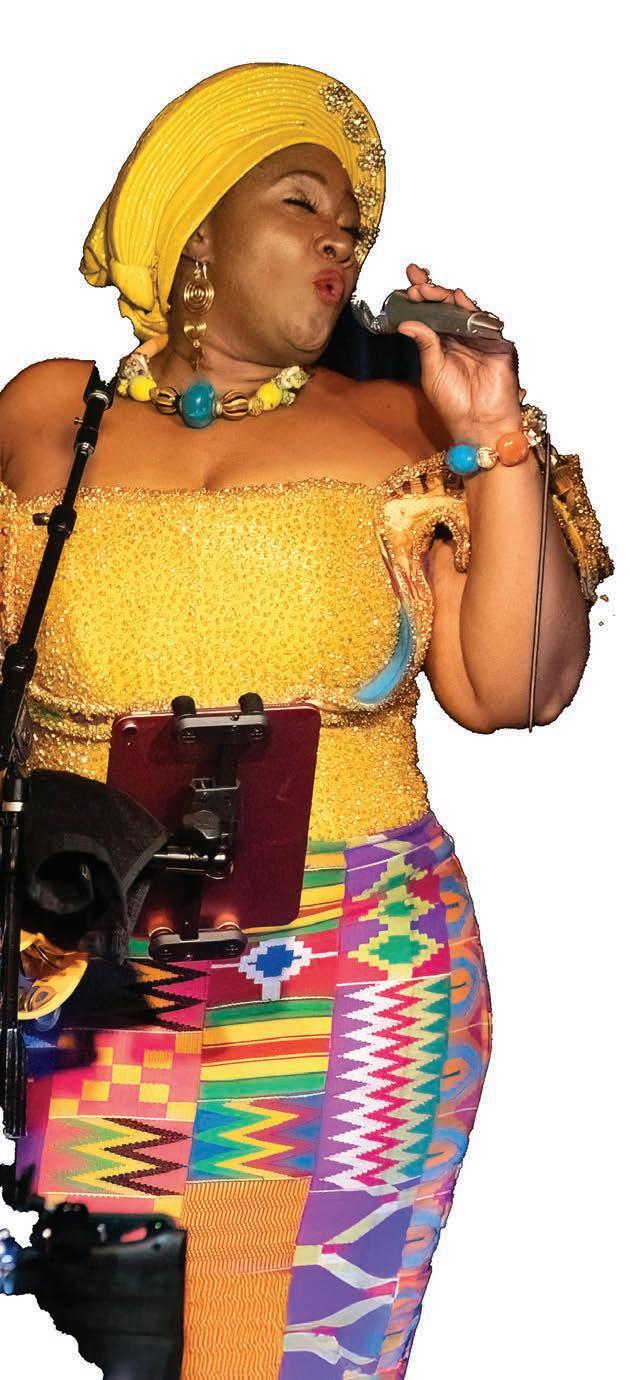
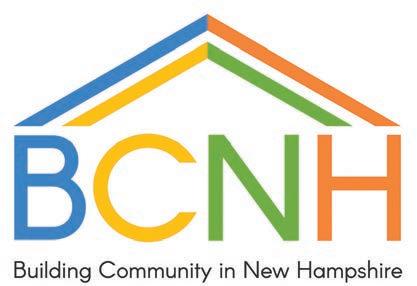
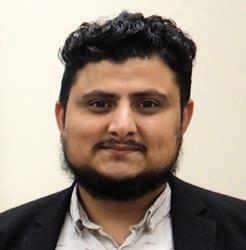
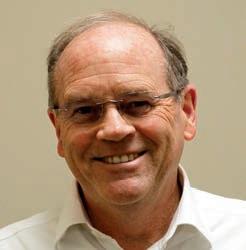

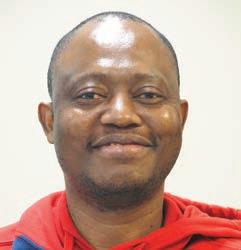
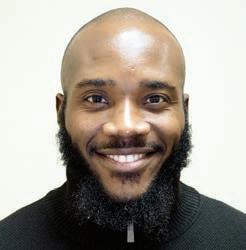
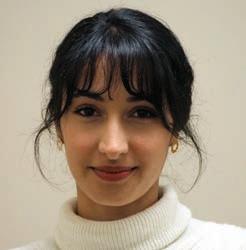
Refugees are the product of war, ethnic cleansing, and hate. New Hampshire is home to hundreds of refugees from around the world: from Bosnia, Bhutan, and Myanmar, for example, and more recently, from Congo, Afghanistan, Haiti, and Ukraine. Building Community in New Hampshire, a nonprofit organization based in Manchester, helps refugees and other immigrants navigate their way to safe, healthy,
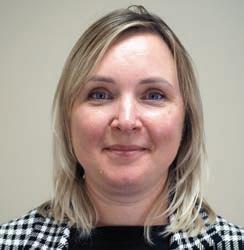
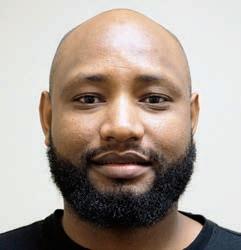
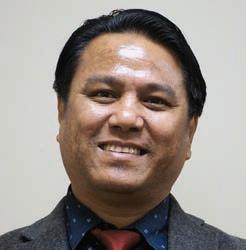
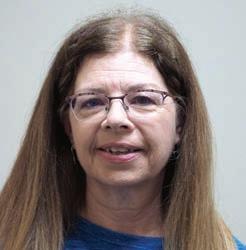
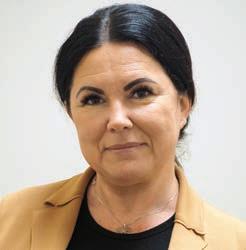
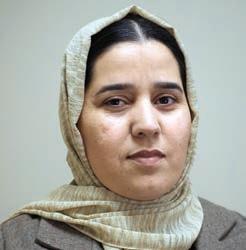
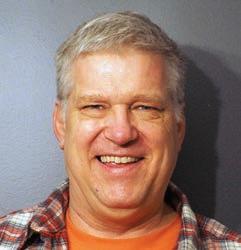
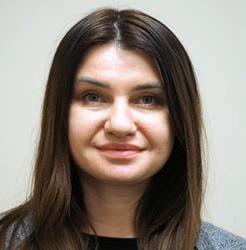
productive, prosperous, and connected lives in New Hampshire. Our six case managers, refugees themselves, help their community members find jobs, apartments, medical services, and each other. In most ways, the men and women shown here are typical New Hampshire residents. They also happen to be our staff and members of the BCNH board of directors. Meet them at bcinnh.org.

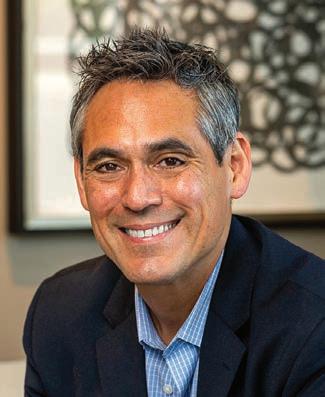

From the opening notes to the closing bars, this issue of 603 Diversity is an opus for the music and arts lover — a balm to the spirit in complex and volatile times.
I’ve written here before how unifying art is for human beings, and I find that notion most powerfully, accessibly revealed in music. (If, for you, it’s dance or sculpture, I’m not pitting them against each other — only sharing my experience. Let’s not scrap over it.)
While music and literature have been coequal passions in my life, I recognize that literature is demanding; it asks you to show up with prerequisites. If you’re going to get the most from it, you have to know the language.
Music comes before language. Quite literally.
In 2012, a team of researchers at Rice University made the case that “music underlies the ability to acquire language.”
In babies, a sense of the rhythms and melodies of the music of language comes far before understanding what the language means.
It’s also interesting to note that infants younger than a year have not yet begun to distinguish between their native languages and other languages — nor do they distinguish their native musical traditions from those of other cultures.
Music and language, for them, are all a song, and it’s universal. That’s beautiful.
I’m a journeyman musician who’s been playing most of his life. Though I’ll never claim to be a virtuoso, I’ve gotten good enough over five decades that I can enjoy sitting in with a group of strangers and having a musical “conversation” where all
the grand themes are expressed in rhythm and melody rather than complex theories and high-flown rhetoric.
I’m so grateful for this, because the sense of connection, across culture, background, politics and just about every other dividing label we might find for each other, is erased when we’re in the groove. It’s electric, and it’s a powerful metaphor for transcendent unity.
I met Ruby Shabazz, whose column reflecting on her journey as a singer can be found on page 38 of this magazine, almost half a decade ago when we hired her and her husband, Bill Fee, to play at the New Hampshire Magazine Best of NH party one summer. It turned into an ongoing friendship. She and Bill surprised me by dropping in at a three-hour solo gig I was doing at a distillery in Concord. She sang a few songs with me. Her voice was incredible; the moment was unforgettable.
Later that year I caught her show over at the Currier Museum. So it goes with musicians you meet in the Granite State.
The connections are made, and though time and distance may stretch them like guitar strings, they don’t break like guitar strings. They interlace, until they form a great mandala connecting all of these players, from so many places, with so many unique and amazing stories.
Now imagine running a finger across the strings of that mandala — that great harp of unity formed by the network of all these passionate musicians speaking the first language, the one before words.
What does that chord sound like?
I think it sounds like unity in diversity. And it feels like something older than language. Peace. 603
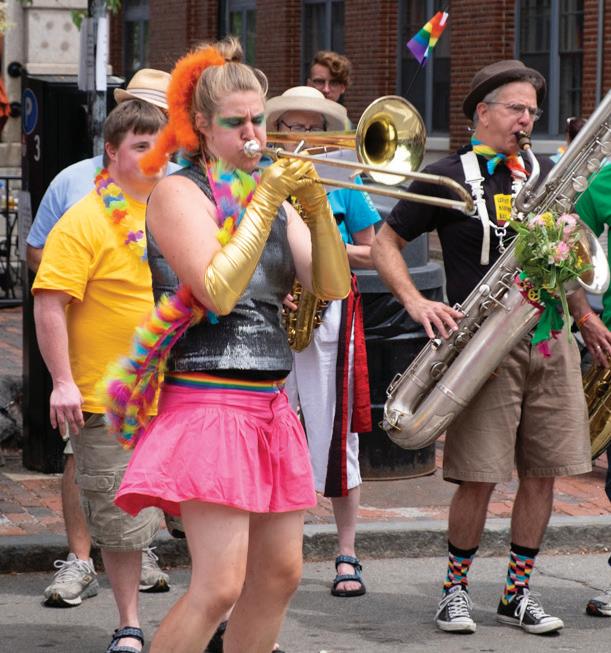
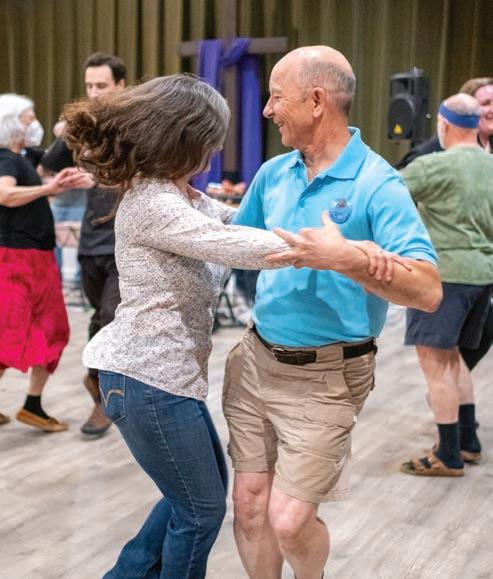
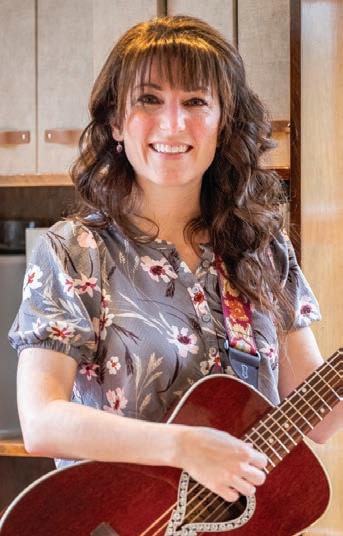
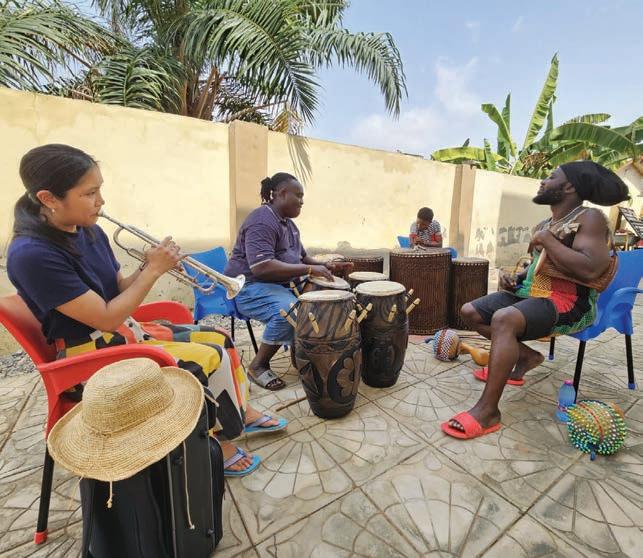
603DIVERSITY.COM
Contributing Writers
Caitlin Andrews
Rony Camille
Suzanne Laurent
James McKim
Trisha Nail
Emily Reily
Kelly Sennott
Ruby Shabazz Yasamin Safarzedah
Contributing Photographers
Robert Ortiz
Contributing Artist Richard Haynes
Editor/Publisher
Ernesto Burden x5117 ernestob@yankeepub.com
Managing Editor Mike Cote x5141 editors@603diversity.com
Managing Editor, Custom Publishing Sarah Pearson x5128 sarahekp@yankeepub.com
Creative Services Director Jodie Hall x5122 jodieh@yankeepub.com
Graphic Designer Christian Seyster x5126 christians@yankeepub.com
Senior Production Artist Nicole Huot x5116 nicoleh@yankeepub.com
Sales Executive John Ryan x5120 johnr@yankeepub.com
Operations Manager Ren Chase x5114 renc@yankeepub.com
Digital Operations and Marketing Manager Morgen Connor x5149 morgenc@yankeepub.com
Information Manager Gail Bleakley x113 gailb@yankeepub.com
To illustrate the mission of 603 Diversity, Seacoast artist Richard Haynes has provided one of his recent designs to accompany our motto “Live Free and Rise.”
We are selling T-shirts and other merchandise featuring Haynes’ design, or a design created by art student Chloe Paradis, to benefit the Manchester Chapter of the NAACP Visit 603Diversity.com to buy one today.

250 Commercial Street, Suite 4014 Manchester, NH 03101
(603) 624-1442
Email: editors@603diversity.com
Advertising: sales@603diversity.com © 2025 Yankee Publishing, Inc.


The 603 Diversity underwriters provide a significant financial foundation for our mission, enabling us to provide representation to diverse communities and for diverse writers and photographers, ensuring the quality of journalistic storytelling and underwriting BIPOC-owned and other diverse business advertising in the publication at a fraction of the typical cost. We’re grateful for our underwriters’ commitment to diversity, equity and inclusion in this magazine, their businesses and their communities.
THANKS TO THE UNDERWRITER OF THIS ISSUE FOR THEIR SUPPORT:
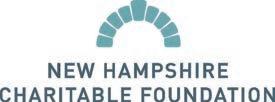
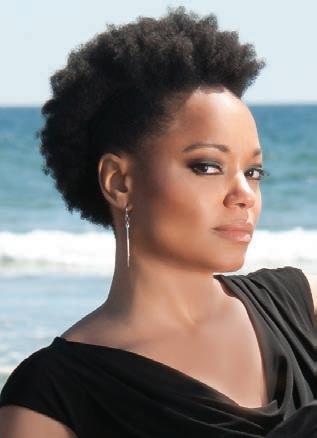
Raised in a diverse community in Boston, Massachusetts, Suzanne Laurent worked as a registered nurse for the Boston Head Start Program. She moved to Toronto, Ontario, in 1982, and unable to work as a nurse, Laurent pursued a career in photojournalism. She has been a resident of New Hampshire since 1987. She has an extensive awardwinning background in journalism. She is also a juried photography member of the New Hampshire Art Association and a published poet.
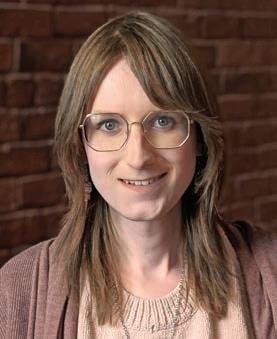
Ruby Shabazz, a Roxbury, Mass., native who now lives in Nashua, grew up inspired by local music legends and Motown greats like Michael Jackson and Stevie Wonder. She embraced influences from Sade, Mariah Carey and Whitney Houston, leading her to songwriting. Her achievements include a No. 1 college radio hit, the 2024 New England Music Award for Soul/R&B Artist of the Year, and NH Magazine’s title of “Queen of NH Hip Hop and R&B.”
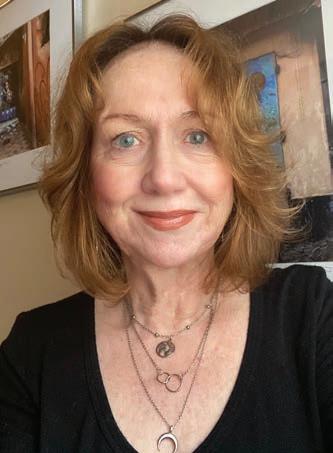
After a stint in daily newspaper work, Trisha Nail became NH Business Review’s assistant editor in 2023. She was previously the business reporter of The Keene Sentinel based in the Monadnock Region, following four years of undergraduate journalism studies and community reporting in her native Alabama. She holds a bachelor of arts degree in journalism from Auburn University. Trisha resides in Concord, New Hampshire.
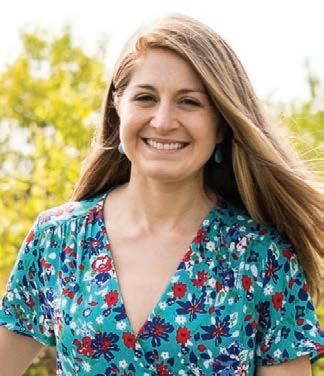
Kelly Sennott is a journalist who has written for newspapers and magazines throughout New England, and is an alumna of the University of New Hampshire’s Master of Fine Arts in Writing program. She is a lifelong New Hampshire resident and currently lives in Lebanon with her husband and son.
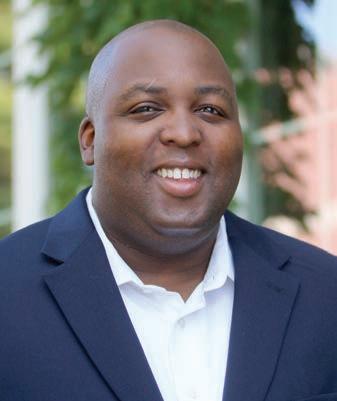
Our regular 603 Diversity cuisine reporter is Rony Camille, a freelance journalist (and son of Haitian immigrants) based in Nashua. A media manager with a focus in digital editorial content and operations, Camille is currently the media program director for the Town of Tyngsborough, Massachusetts.
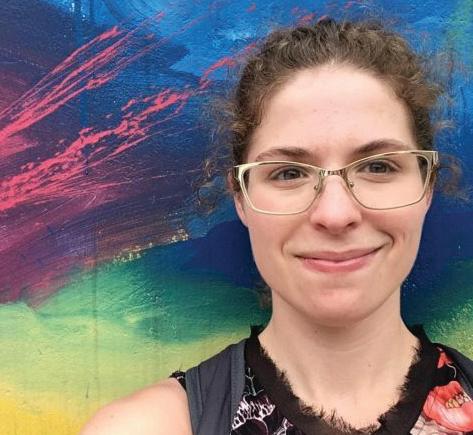
James McKim, who was involved in the original plannng of 603 Diversity and has written essays for past issues, serves as managing partner of Organizational Ignition. He is driven by an intense need to help organizations achieve their peak performance through the alignment of people, business processes and technology. He is recognized as a thought leader in organizational performance, the uses of neuroscience and program management.
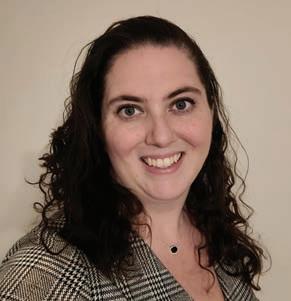
Caitlin Andrews has been a reporter and writer for nearly 10 years and has covered everything from politics to restaurant openings. She lives in Maine.
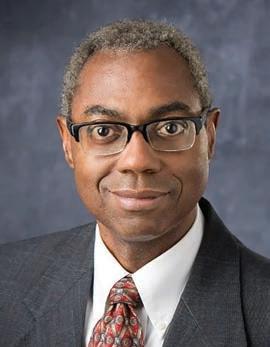
Sarah Pearson is managing editor of custom publications for Yankee Publishing, which produces 603 Diversity and many other titles. She is an award-winning editor and journalist who previously worked for a newspaper. She is a lifelong New Hampshire resident and mother of two.
Emily Reily, an assistant editor at Yankee Publishing, contributes to 603 Diversity, New Hampshire Magazine and NH Business Review. Prior to joining YPI, she worked as a newspaper photojournalist, copy editor and freelance writer. Her work has appeared in the New Hampshire Union Leader, NH Home Magazine, New York Times for Kids and Washington Post Magazine.
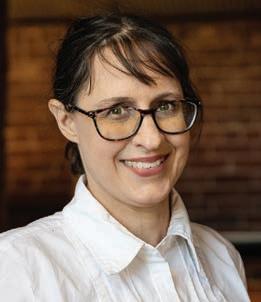
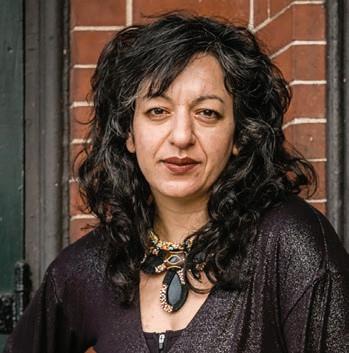
Advocate, coordinator and educator Yasamin Safarzadeh, a native Angelino and current resident of Manchester, compiled our calendar and wrote the feature on “Echoes and Shifts.” Safarzadeh hopes to secure a future for a more diverse young adult population in New Hampshire to ensure a more prosperous and effective future for all. DM her at phat_riot on Instagram.
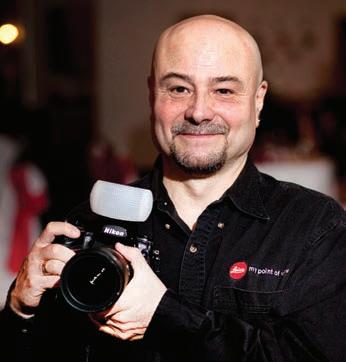
Primary photographer for 603 Diversity is Robert Ortiz of Robert Ortiz Photography. Ortiz began his photographic career at 15, and has chronicled everything from local weddings and events to the lives of the native peoples of the Peruvian Amazon. He lives in Rochester with his wife and son and 15-year-old daughter, Isabella, who is currently in training as his photo assistant.
BY SARAH PEARSON / COURTESY PHOTOS
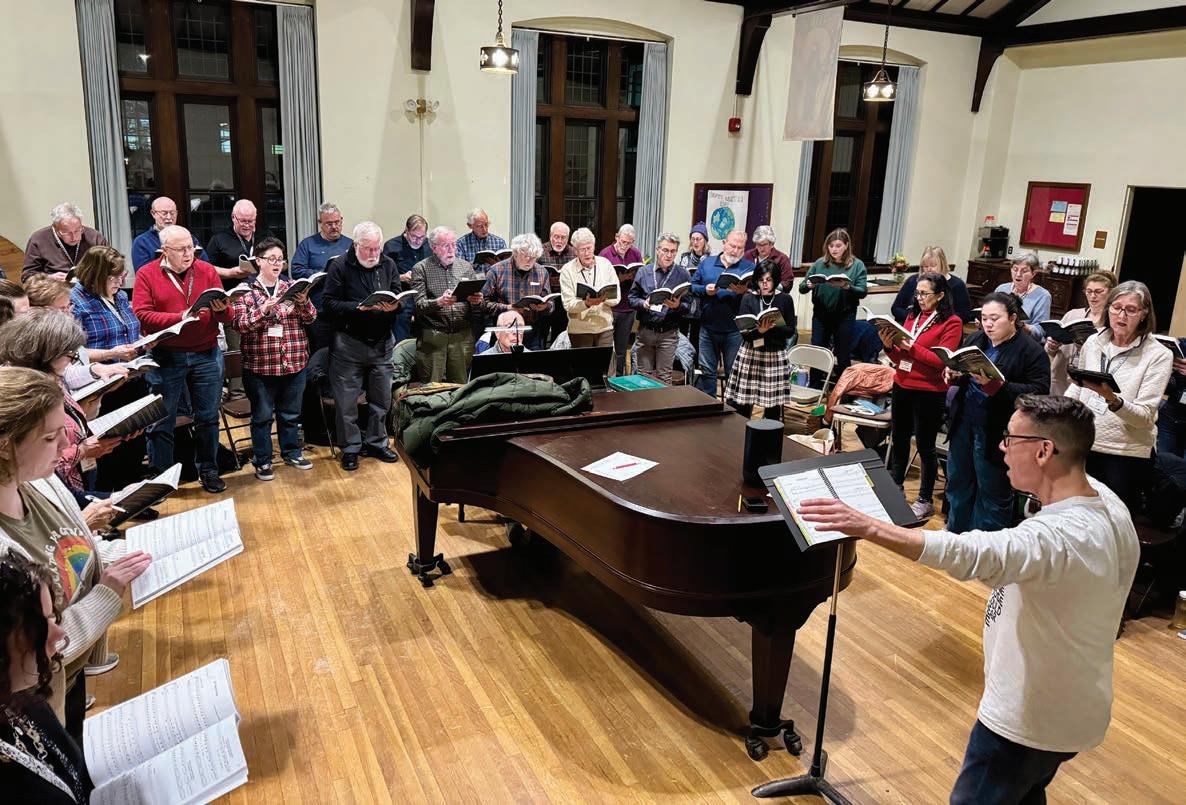
Nearly three decades after Matthew Shepard, a gay University of Wyoming student, was murdered, the fight for acceptance and against bigotry remains just as relevant.
That is among the reasons the Manchester Choral Society will perform “Considering Matthew Shepard” on June 6 and 8. The ensemble is comprised of 65 auditioned community members ranging from teenagers to octogenarians and led by Dan Perkins.
“As a 501(c)(3), we cannot make political statements, but we can make social statements. I chose the piece last year,” Perkins says. “I just really felt that the issue of hate crimes and the issue of acceptance of everyone — regardless of belief or lifestyle or gender or any of those
things — it has to be respected. So that was a big, big motivator.”
“Considering Matthew Shepard,” written by the American composer Craig Hella Johnson, tells the story of Shepard’s life and death, the immediate and lasting response it evoked, and its deeper implications.
Musically, the piece is about an hour and a half long without intermission. This three-part oratorio’s 33 movements blend diverse musical styles.
“The musical style has huge variety,” Perkins says. “There’s a country element.
There’s a piece that has a little bit of a gospel feel. Some of the rest is more popular music style. And then, of course, there are other elements that hearken to classical music and older styles like Bach.”
The lyrics and recitations come from a variety of primary and secondary sources, including Shepard’s diary, recordings from Matthew’s mother and father, and news clippings.
“I was having conversations with people who didn’t know who Matthew Shepard was,” Perkins says. “I thought, well, that’s shocking, and I think it’s maybe a good time for us to bring this story to Manchester audiences.”
Shepard was a 21-year-old student at the University of Wyoming on October 6, 1998, when two young men kidnapped
him, drove him to a remote spot, viciously pistol-whipped him, tied him to a split-rail fence and left him to die, which he did in a hospital less than a week later.
His murder and the trials of his killers become international news, highlighting that, though the gay rights movement had made advances, homophobic sentiments lingered. Shepard’s death inspired new pushes toward tolerance and anti-discrimination, but also drew out religious fundamentalists who protested against homosexuality.
“Bach wrote several oratorios about that — the Passion of Jesus Christ and the story leading up to the crucifixion. This piece quotes some of that style with the crowd yelling, ‘Crucify Him, Crucify Him,’ … and that’s a horrendous movement, because it is representing the Baptist church that came to protest at Matthew Shepard’s funeral,” Perkins says. “They were outside of the church yelling horrible, horrible things, so in a
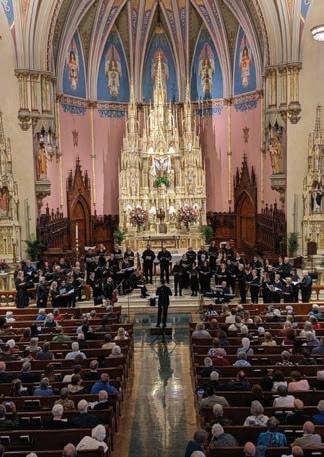
similar kind of mob, violent way as Bach did in his 17th century oratorio.”
A 2009 federal anti-hate crime law bears Shepard’s name and that of Joseph Byrd Jr., a black Texan who was brutally murdered by three white supremacists the same year.
Despite the heaviness of the homophobia that surrounds Shepard’s death, Perkins
says the piece is not all doom and gloom.
“The work is designed to lead the audience and the singers with a sense of hope, and love and kindness,” Perkins says. “There are some emotional moments, but it really does lift everyone up.”
Ultimately, the concert is an opportunity for people to come together and share a musical experience.
“I hope people will be inspired by the story and moved by the story and informed by the story,” Perkins said. “It speaks to the larger issue of hate in our society and our fear of the unknown, fear of the other, fear of outsiders, fear of what we don’t understand. And so, I really hope audiences will come away with a new or renewed desire to learn about people who are different and find ways to find commonalities.”
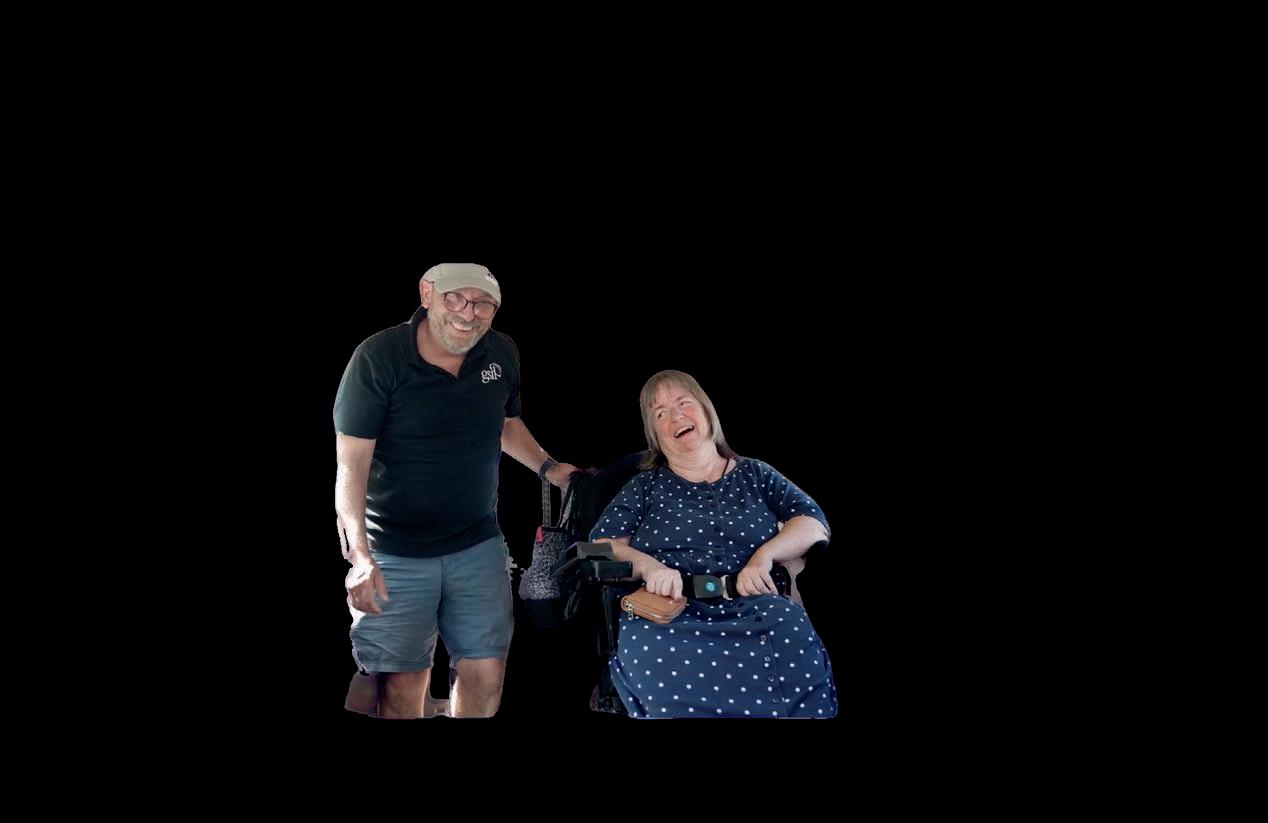
The concerts will take place June 6 at 7 p.m. and June 8 at 3 p.m. at The Venues at the Factory, 252 Willow St. in Manchester. Ticket information can be found at mcsnh. org. 603
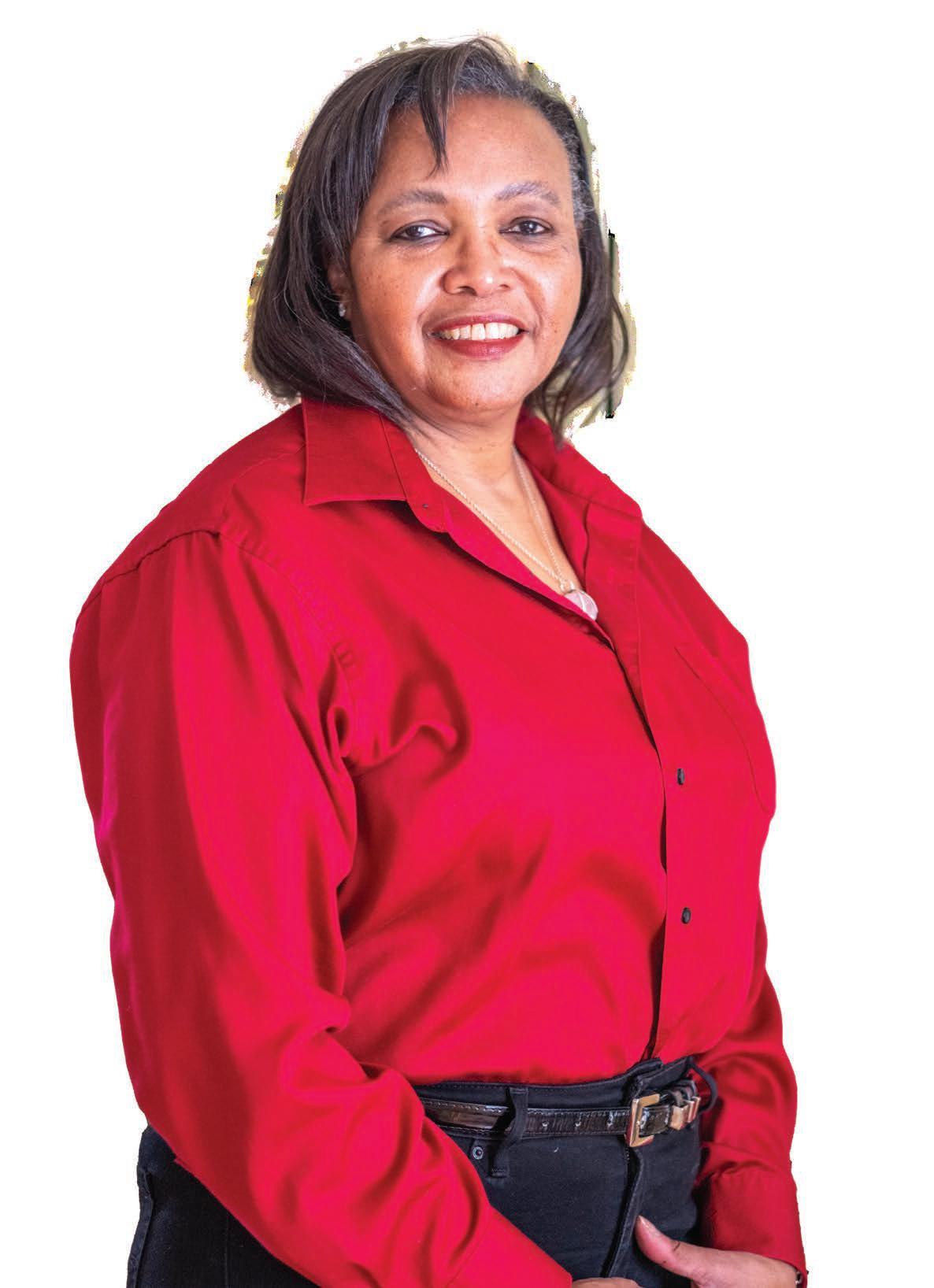
BY
Masheri Chappelle, chairwoman of NH Writers’ Project, is where she’s needed.
Expectations are curious things. Before meeting Masheri Chappelle, I anticipated she might be a no-frills straight-shooter: modest, rigid and inaccessible. I first learned of the chairwoman of the New Hampshire Writers’ Project while attending the New Hampshire Humanities 50th Anniversary Gala. She had a presence. How could I have lived in New Hampshire for seven years and never known she existed?
We met months later at Dancing Lion and shared tea and chocolates for hours. When Chappelle walked into the shop, the world stopped. She wore a caramel-colored ensemble. Perfectly paired rings and necklaces accentuated the gestures of her suit. Her purse was a weapon. Not because of how she moved with it — no, she was graceful in every regard — but because she could seemingly pull entire worlds from its depths.
Determined, intuitive and radiating positivity and encouragement, expectations were quickly shattered. As she sat across the table, the shine in her eyes told me I was in for a ride.
603 D: Let’s start from the impetus of the organization you chair. Why you are sitting at the helm of the New Hampshire Writers’ Project?
Chappelle: The Writer’s Project is a nurturing entity, one which provides experiences and opportunities to help individual writers evolve, grow and create.
We have many different resources for writers. We are not just an organization that hosts webinars and conferences, but we also provide resources to aid authors with their literary projects, information on the process of self-publishing and traditional publishing. Additionally, we provide education on the business aspects of writing, such as finding an editor, book cover design and pricing their published books.
603 D: These are
you called them, but I feel like there is more that you are cultivating with your position as chairwoman.
Chappelle: The fact that we provide events and spaces for writers to be in the presence of other writers is crucial to the writing process and the writer’s journey. These needs have also been documented in surveys we conduct and send out to our members. Most members are looking for the opportunity to share conversations about writing. It is a soul’s journey to write, to tell a story. I am grateful to have a position and environment where I can use my intuitive abilities to guide writers through their stories; to help them reach what has been dormant for them, and in some cases, oppressed or forgotten.
603 D: What is the environment like when people walk into these spaces of shared learning or shared journey-taking?
Chappelle: Our Write-Ins are a journey of authenticity. Individuals who attend get a professional story guide or writing coach session with me. When writers attend our 603 Conference workshops, they engage with experienced professionals. We take the necessary steps to ensure our presenters can facilitate and engage members and attendees, impart information that elevates the participants’ writing skills, and hopefully offer the writer a deeper understanding of themselves. This invokes a more intentional experience. Our goal is to always provide a safe and nurturing space for writers to grow.
603 D: How often do these workshops take place? Where do they happen?
Chappelle: We offer many types of literary events that take place at different venues, like Saint Anslem, SNHU, Puritan Backroom, and the Exeter Inn. We offer monthly Write-Ins, which are designed to assist 15 writers. Each writer receives a 20-minute session with the professional story guide or writing coach in attendance. We also have the Biannual NH Literary Awards, an annual 603 Writers’ Conference (scheduled for June 14 this year: nhwritersproject.org), Masterclasses, Writers’ Night Out across the state; Literary Salons at the beautiful Exeter Inn; Fiction Slams, Stage Write Workshops, where the first chapter of a manuscript in progress is read by an actor in front of a live audience. Additionally, we offer monthly Writers’ Critique Groups, and recently we have partnered with The John Hay Estate at The Fells to produce a fall writing festival in Sunapee.
603 D: What do you believe is the need for all these unique and invigorating opportunities?
Chappelle: This is what writers in New Hampshire have always wanted. Spaces to remove emotional blocking. Spaces to open their creativity and help them find their voice.
603 D: These certainly sound like very effective efforts, which you and the NH Writers’ Project have created. I want to turn now to you, the artist, the writer, the culture keeper and storyteller. Do you present as various versions of yourself in different spaces, or do you use a different voice when you write for journals, blogs, books?
Chappelle: I do not have different faces or different Masheris. I do scare people sometimes, but I believe if individuals show up to the spaces I cultivate with a need to fulfill only themselves instead of working to uplift their communities of writers, they often find themselves walking right through the other door.
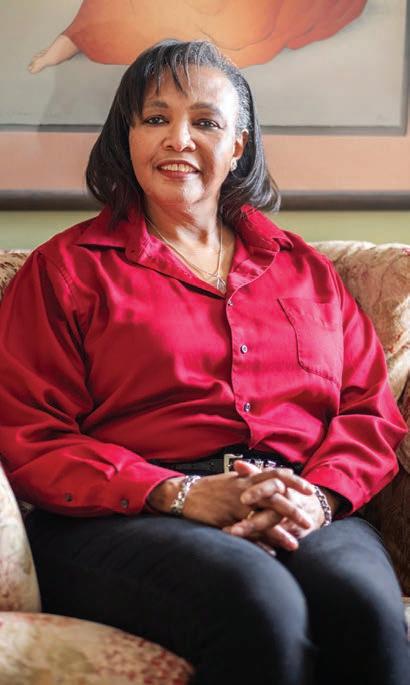
603 D: Can you speak on your own history and how it frames your approach to the work at hand?
Chappelle: I believe that my personal history is good for a reason. My history helps me to set clear boundaries and declarations as to what will be tolerated. I have an organization and a legacy to create and grow for this state. These spaces are for the community; to grow writers and talent we have right here. I am dedicated to this work.
My history ... well, I learned Spanish because I lived in a bilingual community in the Bronx. I married into the Jewish community. I learned the importance of inclusion and of meeting new experiences with great anticipation and gratitude.
In my early years, I was in a College Bound Program at Benjamin Franklin High School. From there, I took a test and was chosen to attend a school in Guilford, Connecticut, through the ABC, A Better Chance Program. I was the first graduate of the Guilford ABC, which was incorporated in 1974.
This program afforded academically gifted
girls, from inner city schools, the opportunity to attend a high-quality school which has a preparatory college-track program. I was one of seven girls of color at the time. I met my first writing mentor and teacher, Mrs Fucci, who inspired me to write children’s short stories. I was very fortunate and blessed to have had the ABC experience. I consider myself having led quite the charmed life. When you have experiences like this, it uplifts you with confidence and feeds your creative abilities.
603 D: Your book, “The Oracle Files: Escape,” is an incredible story about a psychic phenomenon connecting characters across space and time. It speaks of the colorism often used to pin Black Americans against each other. But I am curious how you found your footing in writing the character Malachi, who is from Africa, and then projecting to Elizabeth Chase’s character, a Black woman so pale she uses her light-skinned privilege, Blue Veins, in navigating a world fraught with inhuman oppression.
Chappelle: For Malachai, I went back to the 1500s when the Portuguese and the Spaniards were coming over. I don’t want to tell you the ending. But Malachai has his world and his rules. These rules governed his life and his perception. And they govern what he takes from the physical world and brings into the spiritual world. He has one version of his reality, which he is unable to let go of. He sees the soul of Elizabeth and who she was in his life, and that’s why he chases her.
603 D: There is metaphor behind everything we do.
Chappelle: For me, it’s about the essence and the pain of humanity and how it is melded. And how the trajectory will continue if we do not recognize who we are. Malachi comes across as a dark character, but as the book evolves, you can see things he abides by because he was holding a truth and an honor that was the core of his existence. I take the roots of African Americans here and juxtapose it to Malachi. I think about the hierarchy of color; thinking back on my own personal discomfort. I remember the
moment when I was 33 and pregnant with my second daughter. I was in the kitchen with my oldest daughter and my mother called her sister, Teresa, high yellow. The venom of her words shattered me.
603 D: I have to ask.
Chappelle: High Yellows, Redbones, Blue Veins — all the painful names we use to refer to light-skinned Blacks. This is why “The Oracle Files” was created. Throughout my entire life, race was never brought into the house or made an issue. My father was from Raleigh, North Carolina, a highly racist region. My grandfather was a Pullman, who handled passengers’ luggage on trains. My cousin found his name on the roster. So, I guess I never heard any racism, all the way through college. The racism I experienced was from my own people and about how I should not engage or befriend white people. I felt this language was so derisive. That the language was so angry. It wasn’t until I arrived in college that I experienced a bit of racism, when other Black students tried to get me to isolate myself from the college community. Had I adopted those divisive beliefs and sentiments, I would have excluded myself from many opportunities. I would have missed the opportunity to attend Guilford ABC, Smith College, and the opportunity to become a Smith Scholar. I’m not saying racism didn’t exist. I’m saying there is a more productive way to battle it.
I love who I am. I love being the little Black girl from the South Bronx, who became bilingual and had Puerto Rican friends. I love the rhythm of my words. I love the way that I, as a Black woman, can take a noun and turn it into an adjective when I get angry. There are many things that I am proud of about myself and things that are unique to me because of my experiences in both the physical and spiritual realms. I embrace them all.
603 D: May I ask for a few morsels to take with me and let the readers sit with after such an incredible interview?
Chappelle: Wherever you don’t see yourself is where you need to be. And, possibly, never allow anyone’s limitations to be yours. 603
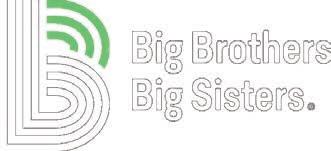
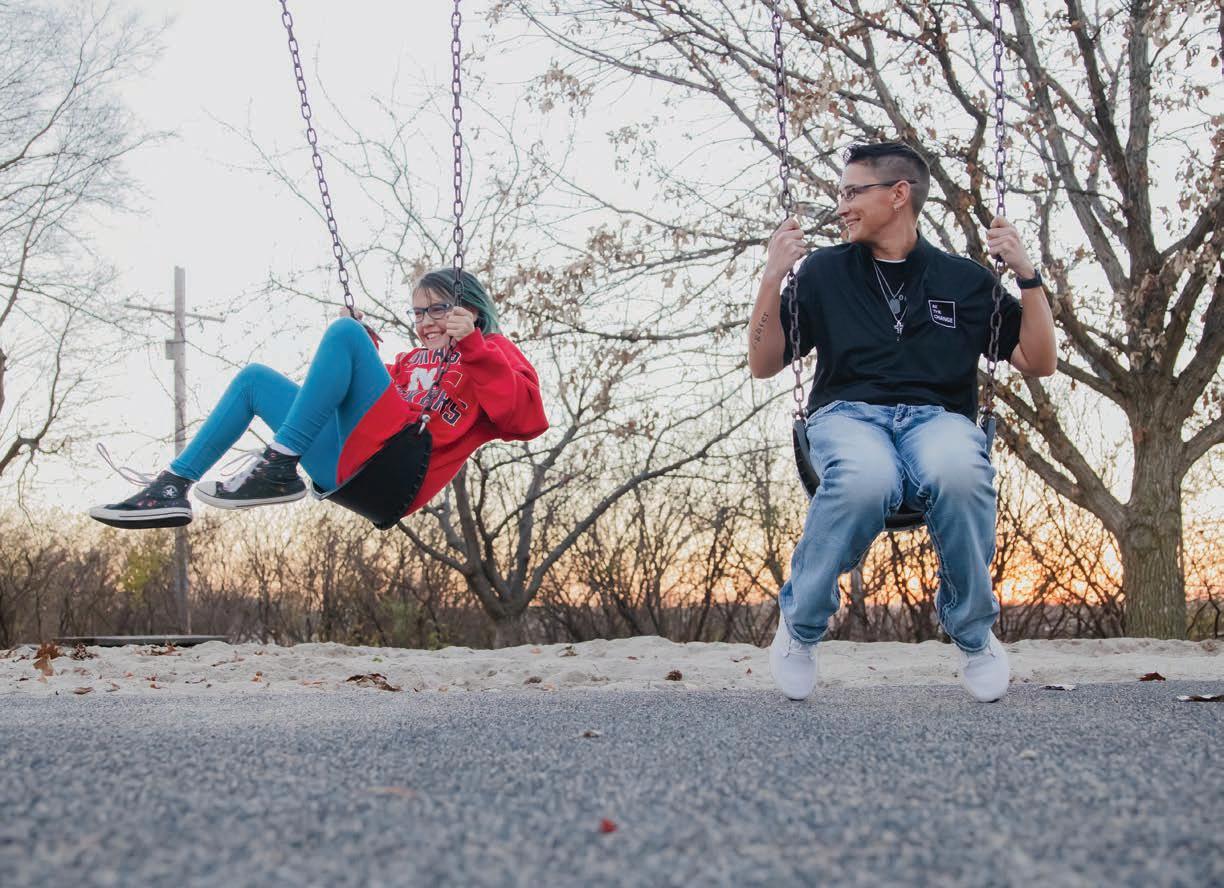
Do you or someone you know like to do fun things and give back to their community? Maybe they like to game or to make art, shoot hoops, hike, fish, and want to do those things while spending time with someone that needs a listening ear. Lots of the kids that come to our program are looking for someone to connect with and share new experiences — often things they have never gotten to try or experience. Big Brothers Big Sisters has helped thousands of people find meaning, instill hope, and offer new opportunities for NH’s youth. Join our village and have an impact that will last a lifetime! You or someone you know can become a Big/mentor, donate to support a mentoring match, provide an activity or skill to our mentees…the possibilities are endless so go to bbbsnh.org to get more information.
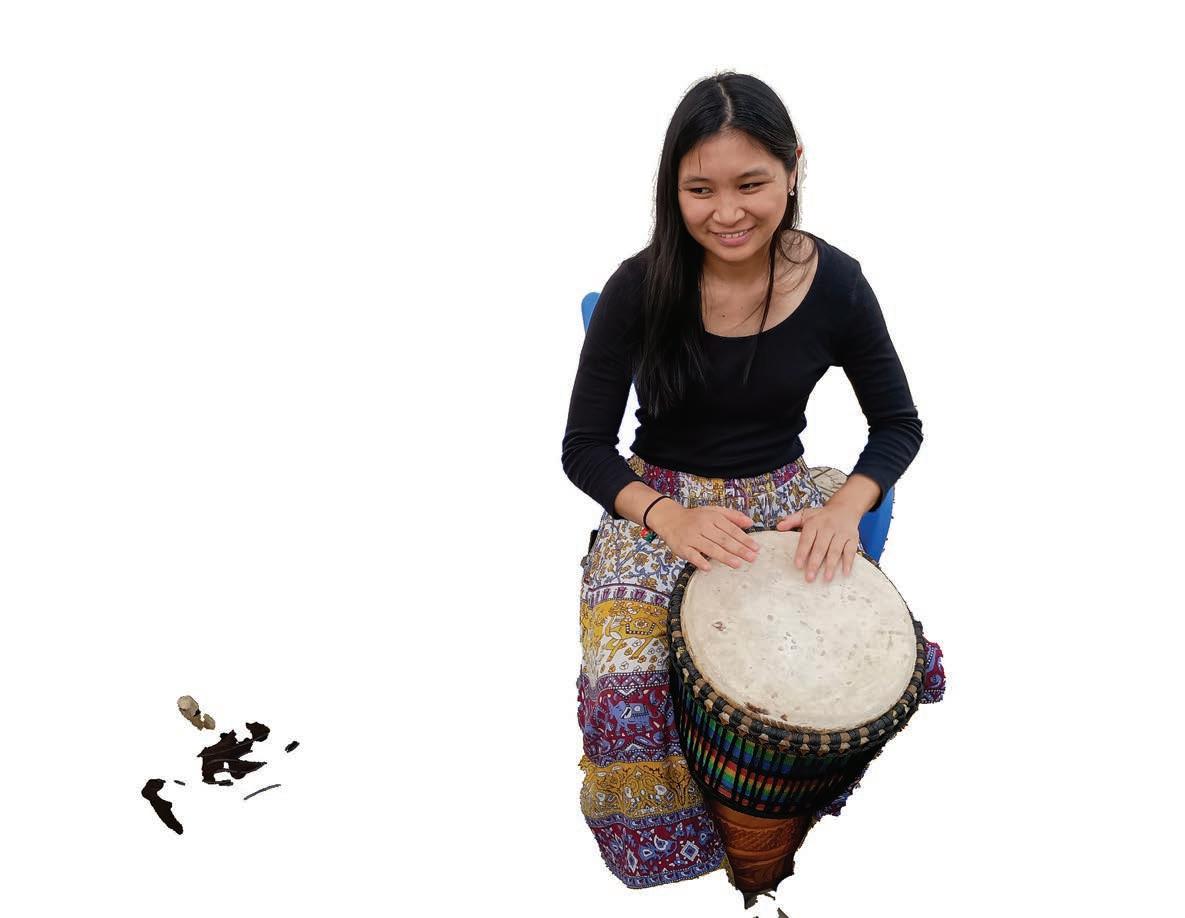
For the last five years, Theo Martey has been leading cultural immersion trips to Ghana.
Martey, New Hampshire’s Artist Laureate from 2022-24, now lives in Manchester, but he was born and raised in Accra, Ghana. He is a drummer, dancer, songwriter and founder of the Akwaaba Ensemble.
“I do this once a year,” he says. “It’s just connecting back with the culture. It feels really great giving back to my community back in Ghana, and connecting with people that I left back home.”
In January, he took his most recent cohort for two weeks of drumming and dance lessons, trips to cultural institutions, entertainment and culinary exploration, and shopping in local markets.
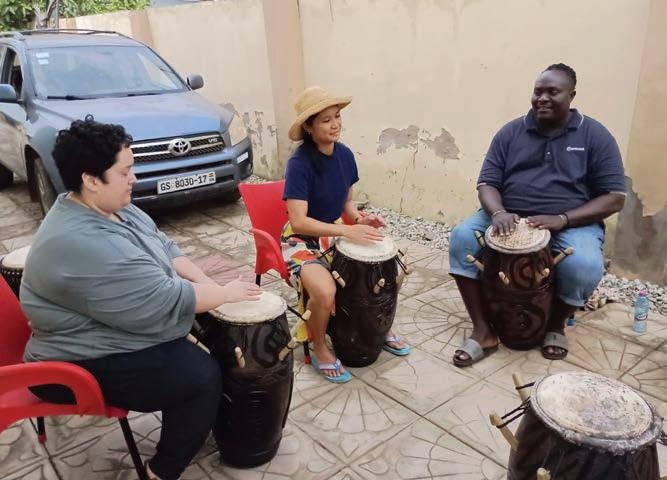
“We do a tour around the city, visit museums of Ghana and see the sites of the past and present presidents,” Martey says. “And we visit other places like Elmina Castle, where the slaves were kept before being transported to the United States.”
Martey coordinates classes with local musicians to teach the workshops. Some of them he’s known for some 15 years.
Students come not only from New Hampshire but across the world, from as far away as Australia and England, or as near as Maine.
“Some of them are teachers that want to learn more about the world music,” Martey says. “Some are people that want to go on tour to Ghana, and learn about the culture. So it’s a mix of people.”
Regardless of if they are musicians, teachers or just people looking to travel, Martey says that participants will discover that Ghana is a safe place to immerse themselves in a new culture.
“It’s important for me to spread the music and everything that I do with everybody around me,” Martey says. 603
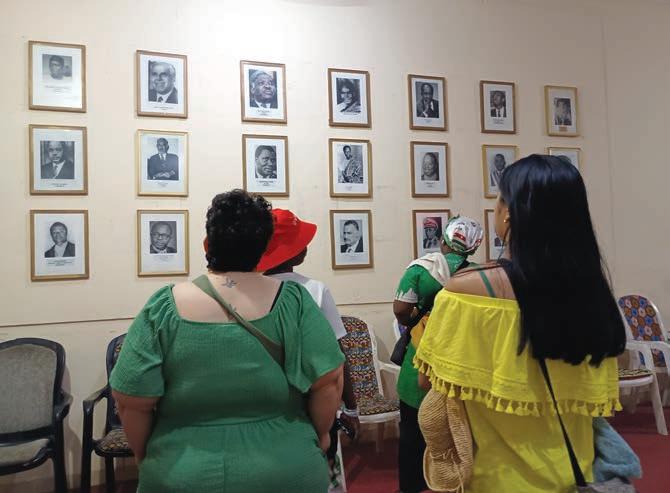
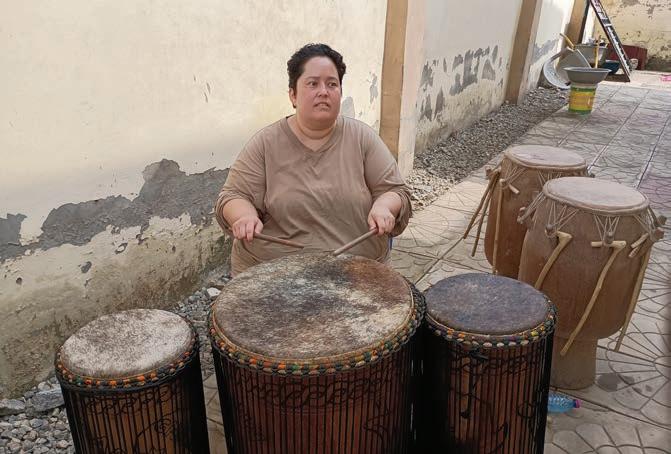
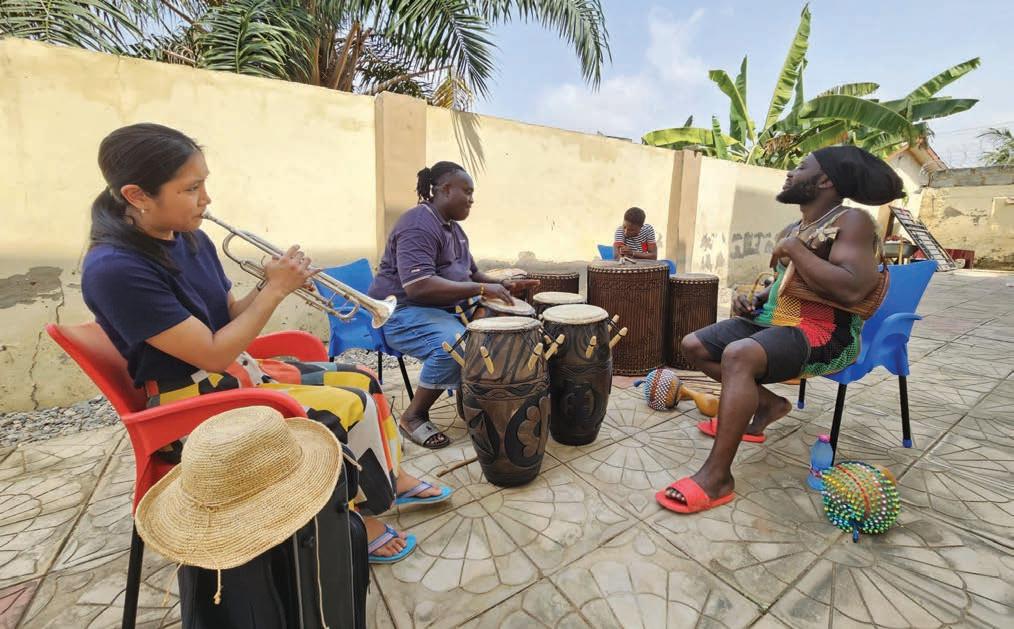
BY SARAH PEARSON
BY ROBERT ORTIZ
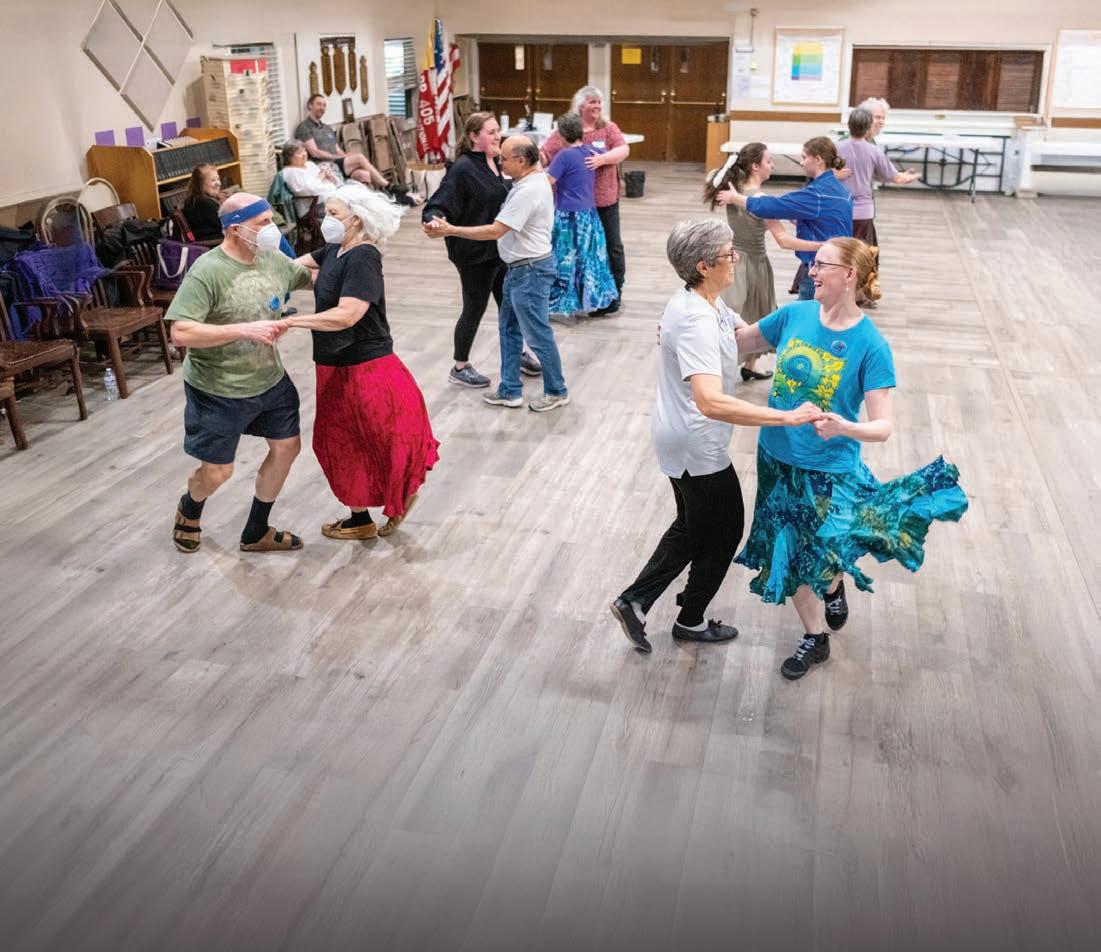
Dating back to French-Canadian, Scottish and English immigrants to New England, contra dancing has a history of bringing communities together.
The folk-dance style popular during the Colonial era saw a resurgence in the 1960s and continues to gather people together for an evening of music, dance and connection throughout New Hampshire.
“Contra dancing, as a social event, is as much a New England phenomenon as the town meeting, and it’s through the dancing that this music is best preserved,” Paul Lizotte wrote to the NH Arts Council.
“Balancing tradition and innovation, keeping the demands of the dance foremost even while meeting the expectations of a new generation of dancers is key. Contra dancing builds community,” Lizotte wrote. “Throughout New Hampshire, many small to
medium-sized dances continue to thrive as community events, as people are exposed both to the traditions preserved in the music and to the spirit of social dancing.”
Lizotte has been fiddling for more than 25 years and learned the music from master fiddler Rodney Miller. He performs at contra dances in southern New Hampshire with the group JumpStart, which has been around for about 20 years in various formations.
Similar to square dancing, but with less complicated steps, dancers begin in lines and dance in pairs. The steps can be repetitive, so it doesn’t take long, even for beginners, to get comfortable with the movements.
It’s a low-barrier activity for someone to get involved with as a dancer or musician. While some conservatory-trained musicians are performing for contra dances, in the Granite State it’s largely
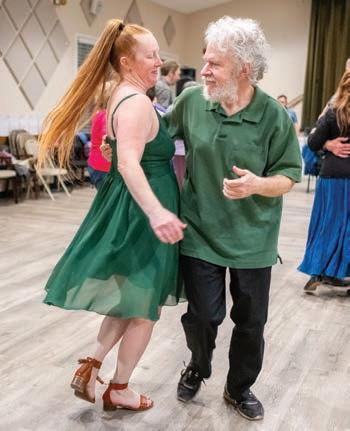
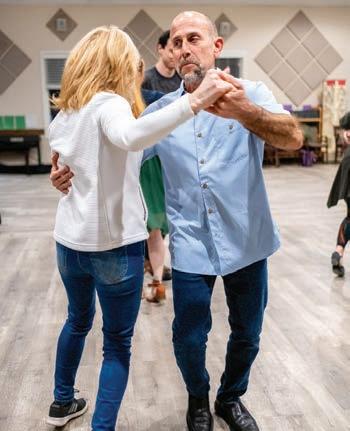
led by amateur, self-taught fans.Throughout the sets, partners switch, allowing connection with others in the community.
Lizotte says that contra dancing in New Hampshire has become a community with this shared interest, and he’s got more than 120 friends from becoming involved with it.
“I really feel that I’m carrying on a tradition but also expanding it,” he says during an interview with 603 Diversity.
While contra dancing is a traditional dance style that’s been around for hundreds of years, there’s been an emergence of a younger generation looking to keep it alive and make it their own.
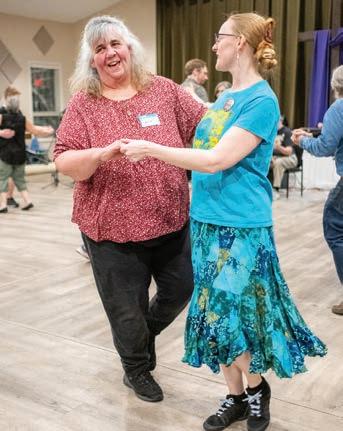
On Jan. 24, Milford’s contra dance had more than 90 participants, with 25 aged 20 or younger.
“It’s changed,” Lizotte says. “It’s great to see these young people picking up the tradition.”
Contra dances are held across the state, with most locations hosting monthly gatherings. On most Fridays and Saturdays, you can find an option for a dance, Lizotte says. There are some held Sundays and Mondays as well.
“I’ve had a great time playing fiddle,” Lizotte says. “I’ve had a great time dancing.” 603
“Balancing tradition and innovation, keeping the demands of the dance foremost even while meeting the expectations of a new generation of dancers is key. Contra dancing builds community.”
— Paul Lizotte
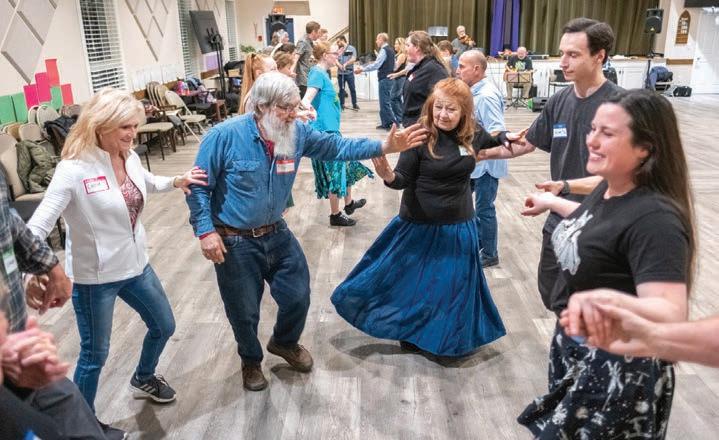
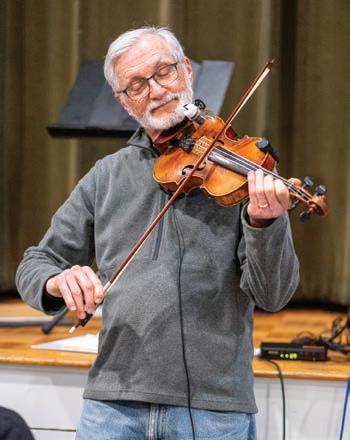
BY RONY CAMILLE PHOTOS BY NORM EDER
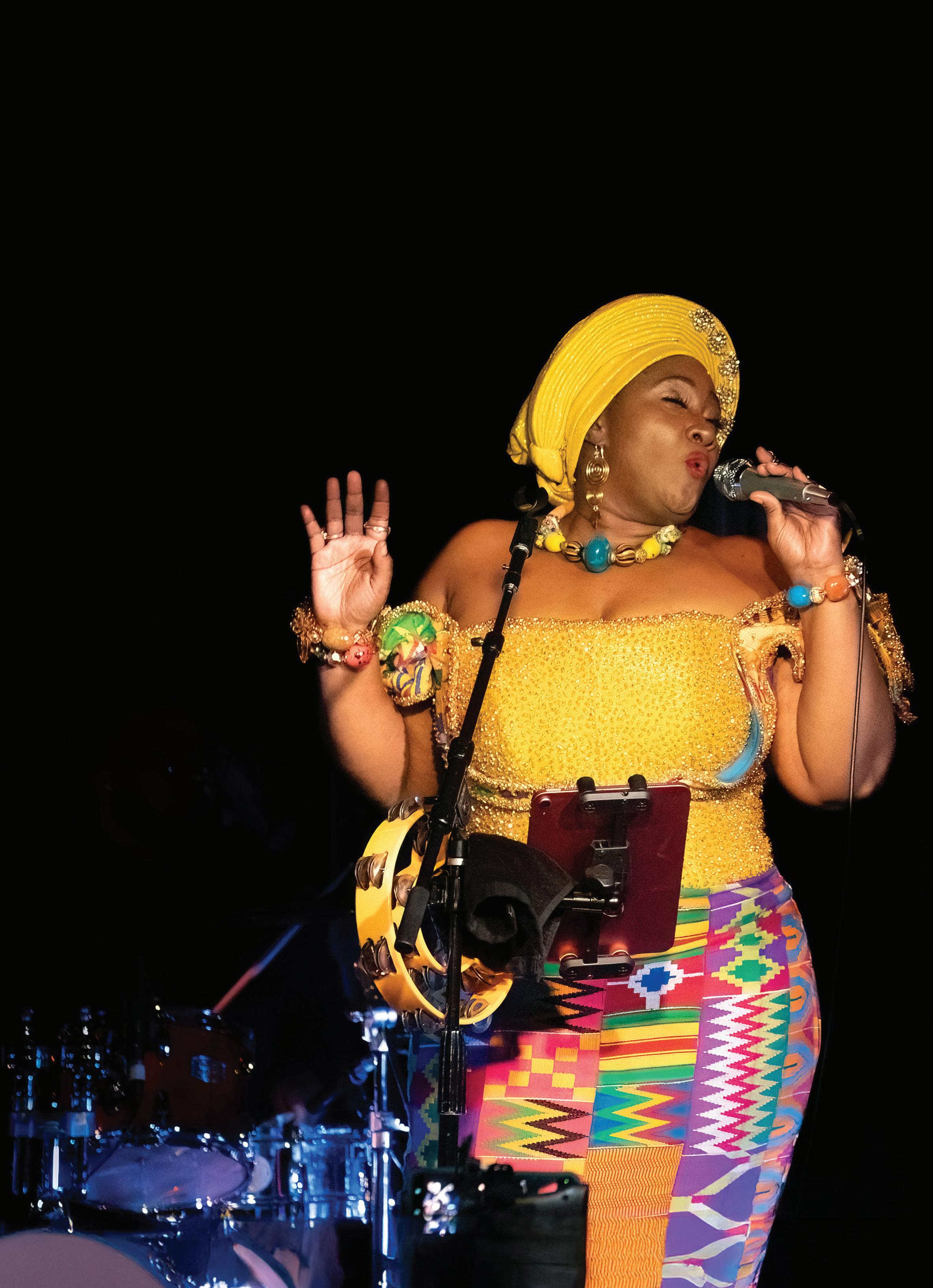
Blues music may not be the first thing that comes to mind when you think of the Granite State. However, if you ask around and know where to look, you’ll find it woven into the state’s cultural fabric and music scene.
From historic venues like The Stone Church in Newmarket to the work of the Granite State Blues Society, various weekend jam sessions, and music festivals across the state, the genre has carved out a niche space here, even if it’s far from its birthplace in the Mississippi Delta or its roots in Memphis, Chicago and Houston.
It thrives in intimate club performances, on festival stages, and in the voices of dedicated musicians who refuse to let the blues fade into history.
One of those voices belongs to Ms. Vee of Berlin. A force of nature on and off the stage, she is more than a performer; she is a storyteller, an activist and a living bridge between the past and present. Born Valyria Nyree Williams in Arkansas, she later embraced the name Akosua Valyria Nyree Arnold Afriyie after a trip to Ghana, where she
reconnected with her ancestral roots in a profound, emotional way.
“The visit was so heavy, I cried like a fool,” she said. That experience led to her song “Sweet Ghana,” a powerful reckoning with history and identity. The lyrics speak both to her ancestors and the oppressors of the past, a reminder that the pain of history lingers, but so does its strength.
For Ms. Vee, blues isn’t just music; it’s a living history. It’s also a battle. Being a Black blues artist in a predominantly white state comes with its challenges, and she doesn’t sugarcoat them. “They hate our Black ... but love our blues,” she says, summing up a reality that’s hard to ignore.
The blues was born out of struggle, and she believes it’s a mistake to strip it of its roots.
“Blues and politics have always been intertwined,” she said. “You can’t separate them. The music was created as a response to oppression, and to ignore that is to erase its meaning.”
Those origins stem from the 1800s when Black American slaves blended work songs, spirituals and field hollers into what would ultimately give birth to the blues.
According to music historian Lamont
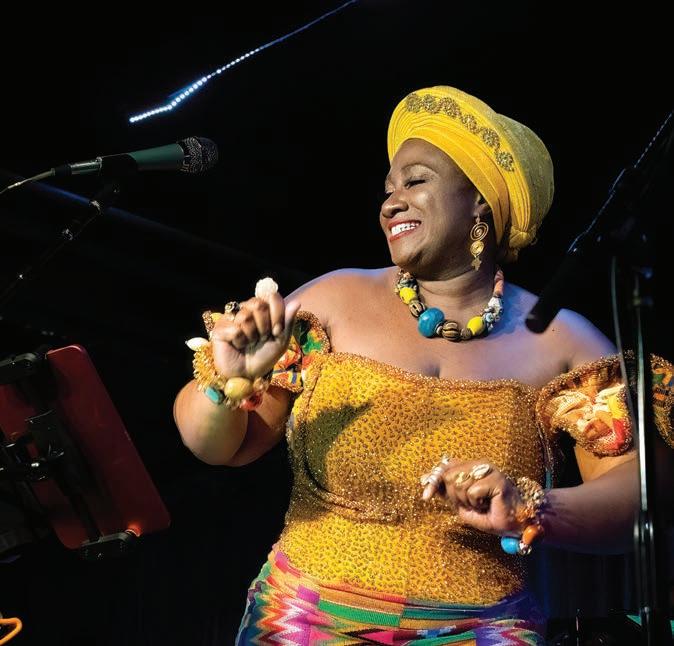
Pearley Sr., writing for the African American Intellectual History Society, the blues was “an avenue for survival” that allowed enslaved people to express pain, resilience and hope despite the brutal conditions they faced. As the genre evolved, it became a powerful form of storytelling, carrying the weight of history and shaping generations of Black musicians.
That perspective hasn’t always made
her popular in every blues circle. Vee has encountered audiences who love the music but are uncomfortable when she brings up its history. She’s shared stages with musicians who prefer to avoid politics altogether. And she’s had to navigate spaces where she feels like she has to prove herself before being fully accepted.
“Sometimes I feel like I have to be a dancing bear,” she says. But she
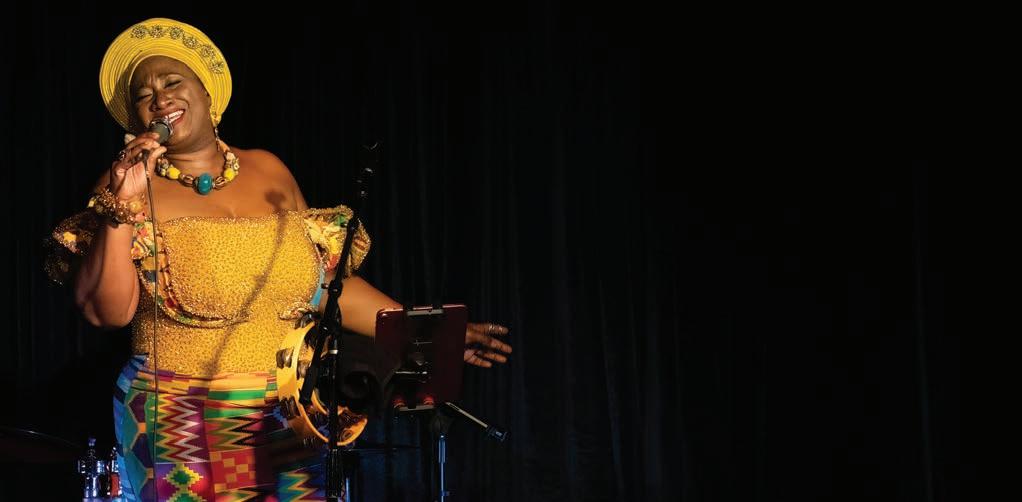
“Blues and politics have always been intertwined. You can’t separate them. The music was created as a response to oppression, and to ignore that is to erase its meaning.”
— MS. VEE

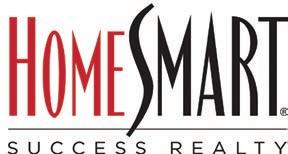
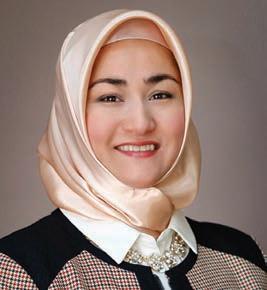
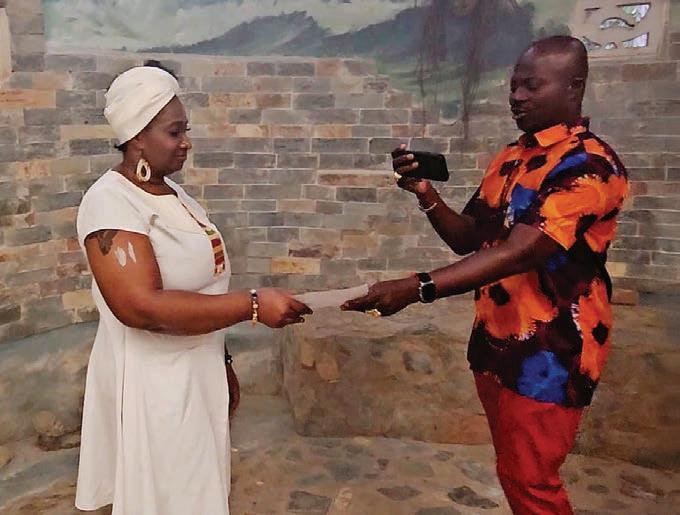
refuses to shrink herself.
And when she steps on stage, she owns it. Dressed in one of her colorful signature ball gowns — because, as she puts it, “People appreciate when you dress up for them” — Ms. Vee commands attention.
Whether she’s belting out a classic blues standard or one of her original songs, she brings fire, humor and raw emotion to every performance. “I want to connect with the audience,” she said. “That’s what this music is about.”
Beyond her personal journey, the broader blues scene in New Hampshire continues to evolve. The White Mountain Boogie N’ Blues Festival, the largest of its kind in the state, brings top national blues artists to the region every year. Events like the New England Blues Summit offer workshops and networking for musicians and fans alike.
The Granite State Blues Society works to keep the genre alive, hosting annual Blues Challenges that send local artists to compete in the International Blues Challenge in Memphis. Across the state, you can find pockets of Sunday jam sessions at Riley’s Place in Milford and
Manchester’s Strange Brew, and shows at Jimmy’s Jazz & Blues Club in Portsmouth.
Despite these efforts, Ms. Vee acknowledges that representation remains an issue. “There aren’t many Black artists in the New Hampshire blues scene,” she says matter-of-factly. And while there are musicians who are passionate about the genre, she argues that passion alone isn’t enough — it needs to come with respect for the music’s origins.
“Blues isn’t just a sound. It’s a history. It’s a culture,” she said. “If you’re going to play it, you need to understand where it comes from.”
Her dual role as a musician and a labor union educator underscores her commitment to advocacy. Just as she fights for workers’ rights, she fights for blues music to be recognized for what it truly is — not just entertainment but a vital, ongoing story of struggle and resilience. “Blues is a truth-teller,” she said. And Ms. Vee has no intention of letting that truth be forgotten.
As long as she has a microphone in hand, she’ll keep singing, keep speaking, and keep making sure that the blues in New Hampshire isn’t just heard — it’s understood. 603






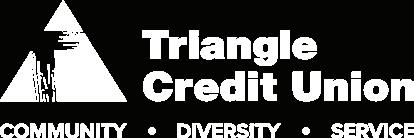


BY KELLY SENNOTT
PHOTOS BY ROBERT ORTIZ
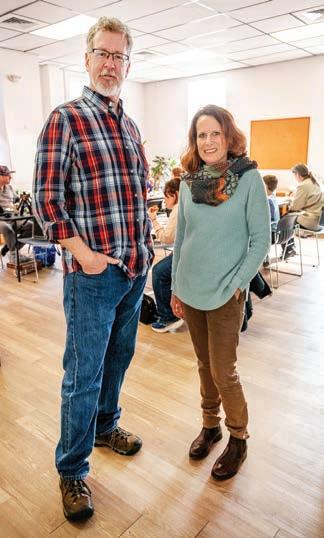
Program coordinators Jeff Symes of Northwood and Dawn Peret of Litchfield observe their group.
n his day job at Gateways Community Services, Jeff Symes helps adults with disabilities secure employment, education, medical care and other needs.
But during home visits with individuals, it occurred to him there was a gap in what he could provide as a service coordinator, particularly when it came to their creative pursuits.
On the walls of one Gateways participant’s home, he saw their artwork. In talking with them, he learned they constructed cosplay costumes for Comic Cons and created stop-motion animation in their free time. They were artists, he said, “But it was under the radar. It wasn’t something they were sharing.”
He saw this gap as an opportunity. What if there was a channel where people with disabilities in New Hampshire could connect and socialize through art? Not only would something like this be cognitively beneficial — since, he said, research indicates art helps create neural pathways –— but he also thought people would enjoy it.
During the pandemic, Symes went to work imagining what this channel might look like, surveying the people at Gateways and calling around. He forged partnerships with the New Hampshire Center for Justice & Equity, the United Way of Greater Nashua, the Arlington Street Community Center and local arts organizations.
The result is U+I (Unified + Inclusive) Arts, which offers free monthly creative programs for people with disabilities, with programs ranging from African drumming to movement and dance. Most events are held at the Arlington Street Community Center, with food supplied by local restaurants and plenty of help available for those who need it.
“For people with disabilities, I think it can sometimes feel like you’re in a bubble,” said Jessica Hägg, the director of the Arlington Street Community Center. “I think it can be hard for people to find community spaces to go to, and I’m glad we can be a part of making that easier once a month.”
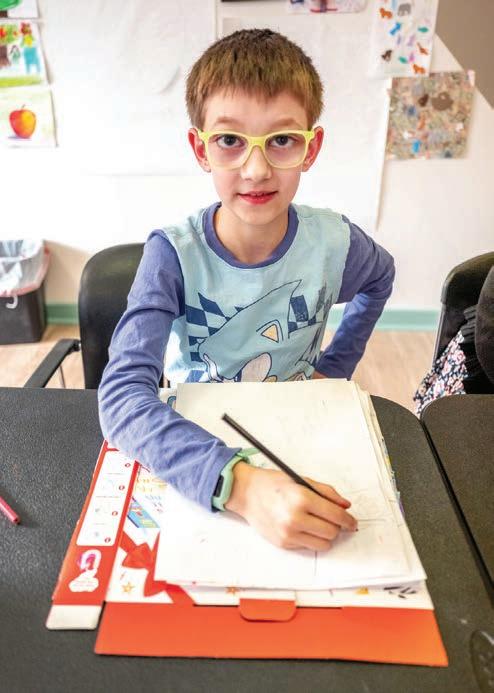
Clockwise: Nolan Sennott of Nashua (no relation to author) works on his picture book; arts programs include music groups; Allie Introcaso of Nashua works on a graphic novel; Judy Gamache from Nashua catches up on knitting.
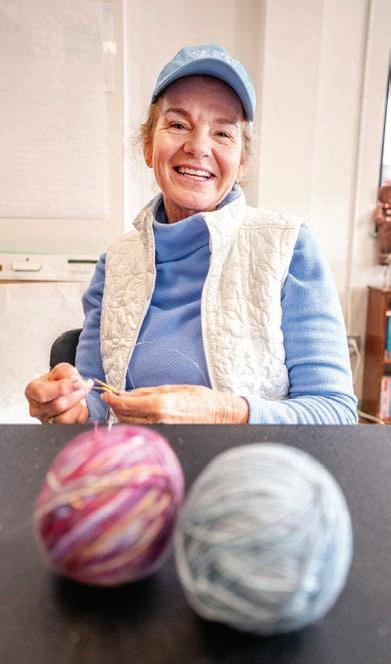
“I think it can be hard for people to find community spaces to go to, and I’m glad we can be a part of making that easier once a month.”
— JESSICA HÄGG
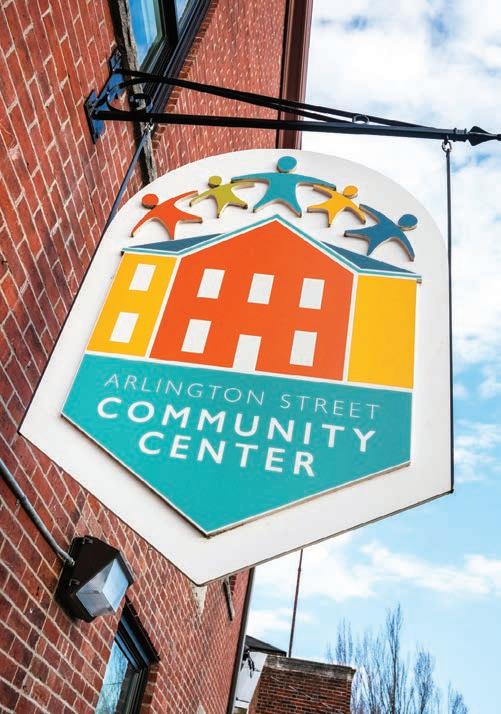
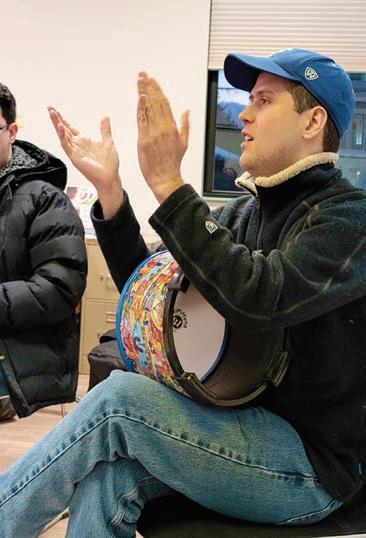
“To be able to provide somebody with the opportunity to grow or explore an interest — that’s fantastic.”
— JEFF SYMES
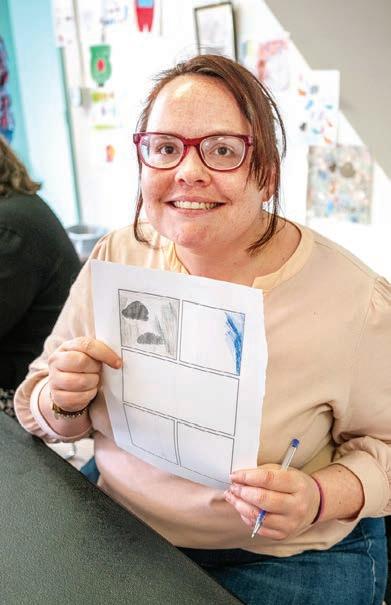
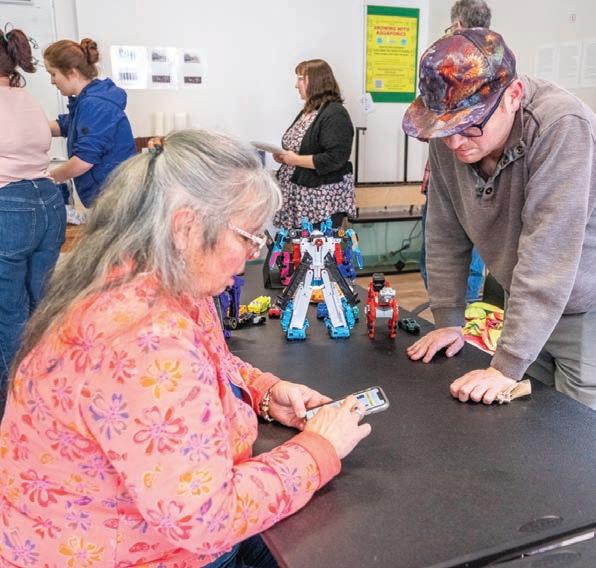
Clockwise: Linda Riendeau of Brookline helps Mike Gamache research the Power Rangers; Joshua Conroy shows his drawing; music and visual arts are part of U+I’s programs; coordinator Dawn Peret shows her sample book.
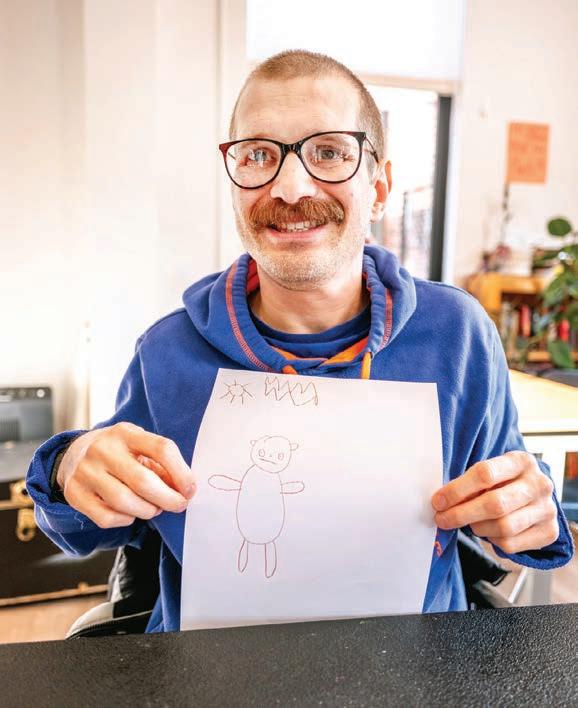
“When you see a need, and it’s in your hands to be able to address that need, then you should go for it.”
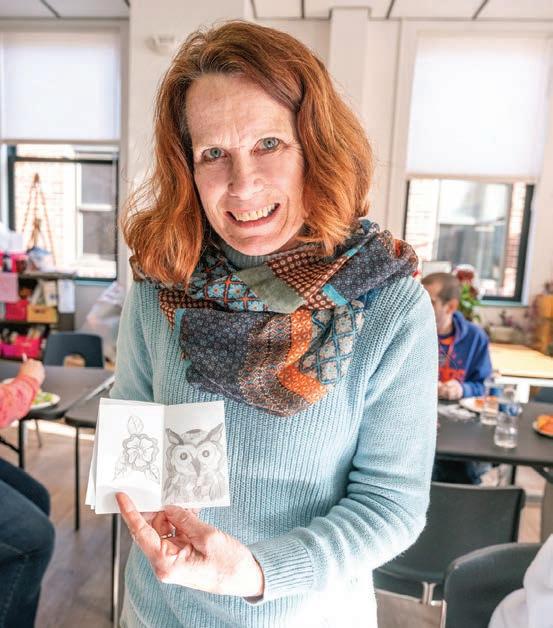
— JEFF SYMES
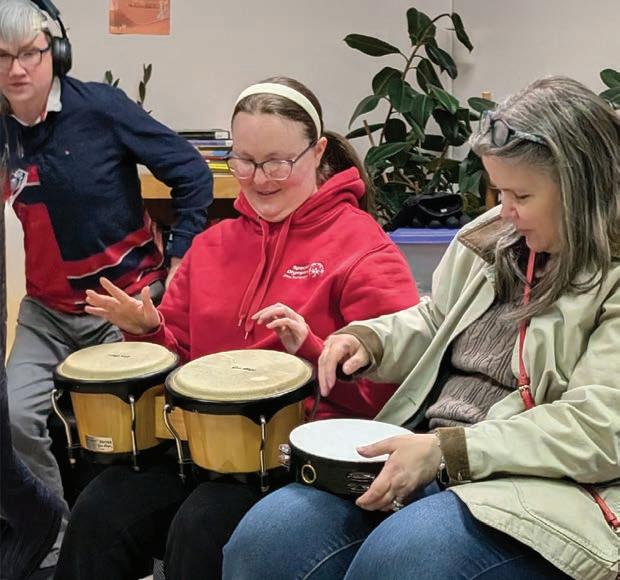
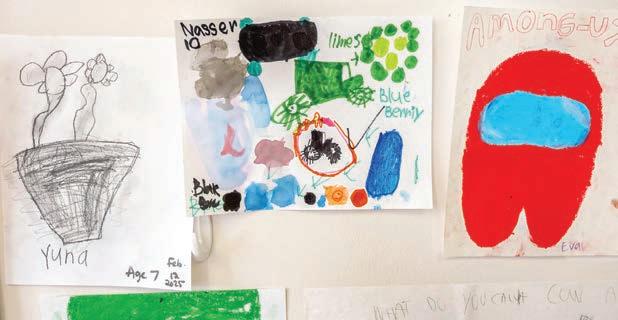
Allie Introcaso, a regular participant, said the workshops present a reminder of how impactful creating art can be. She learned about U+I Arts through Symes, her service coordinator at Gateways, and immediately loved the concept.
Introcaso painted all the time in high school but stopped when she became an adult. Since the workshops began, she’s been delving into more art during her free time, which feels good.
“It’s freeing,” she said via phone. “I don’t have to think about the craziness of the outside world. (Creating) blocks out some of the noise.”
Her mother, Alice Introcaso, regularly attends the events with her daughter and finds them equally impactful. She mentioned a recent class presented by a local dance instructor.
“It was amazing that she was able to get
this little group of people to do a dance routine together,” Alice Introcaso said. “I was very moved.”
Demand is high, and most U+I events are at capacity at Arlington Street. Some even have wait lists. Symes said he’s looking at ways to serve this demand — maybe by offering events more frequently, maybe by finding a larger space — and he’s been recruiting U+I Arts regulars, like Allie and Alice Introcaso, to take on leadership roles within the organization.
This spring, some U+I Arts regulars plan to sell their work at Nashua’s Pride Festival, which is something Symes and Hägg would like to see more of: artists taking agency and doing more with their art.
What other events or programs might U+I Arts spur, they wonder? Exhibitions? Recitals? They hope so.

They’ve also been talking about how they see U+I Arts in the future and the different groups they might collaborate with, including other developmental service agencies. The hope is to cast a wider net to provide more for the disability community and their caregivers.
Everything is volunteer-run; Symes personally doesn’t begin his work with U+I Arts until he has clocked out of his day job. But he continues on, because he knows how important it is.
“I just think that, when you see a need, and it’s in your hands to be able to address that need, then you should go for it. I think that has a lot to do with me not seeing it as work. There’s a lot of joy in this, too,” Symes said. “To be able to provide somebody with the opportunity to grow or explore an interest — that’s fantastic.” 603

New Hampshire Housing has helped over 55,000 homebuyers achieve their dream of homeownership. Now, it’s your turn.
Our $15,000 cash assistance program can help you get started. Plus, you don’t have to go at it alone! Build your team of trusted professionals to guide you through credit, budgeting, and the buying process.

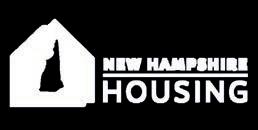

Music can open up a pathway for connection for those facing communication difficulties from developmental differences or disease progression.
About half of the clients at Granite State Music Therapy have autism spectrum disorder, or ASD, says Elizabeth A. Ferguson, MT-BC, its founder and executive director.
That statistic is not lost on Ferguson, who is also a music therapist and teacher there.
“(This) is pretty phenomenal to me, to have that many people we get to serve; and that’s through groups and IEPs (Individualized Education Programs) as well,“ says Ferguson.
The number of people diagnosed with ASD has been rising.
According to the CDC, in 2020, about one in 36 children were diagnosed with autism spectrum disorder. The neurodevelopmental disorder can be characterized by repetitive movements (known as “stimming”), restricted interests, difficulty navigating social situations, unusual responses to sensory stimuli and other challenges. Some are nonverbal or have other trouble communicating.
Music therapy can help improve their lives and the lives of people facing other various diagnoses, like traumatic brain injury, dementia, Down syndrome, cerebral palsy or epilepsy.
The American Music Therapy Association defines music therapy as listening, creating, singing or moving to music. For other emotional, cognitive and social needs, music therapy can enhance memory, reduce stress and promote wellness, and increase coping skills.
“I tend to use guitar way more than any other instruments, because I can face my clients and really feel like it’s more intimate and I’m right with them, face to face.”
— Elizabeth A. Ferguson
The AMTA states that music therapy can help people express themselves with words, increase motivation to become more involved in their treatment, serve as an outlet to express feelings, and give emotional support to clients and their families.
Ferguson shared another surprising fact: “Music is the only stimulus in the whole world that stimulates the brain across both hemispheres. It’s where we process
speech and motor planning. Music is creating all those connections across both hemispheres.”
Even those with ADHD can benefit — another diagnosis that seems to be more prevalent.
“We’re getting more and more calls for that, and just helping build in some coping mechanisms and supports (to help clients) succeed and feel more settled,” says Ferguson.
Ferguson says the very nature of music can help those with ADHD increase their attention spans.
“Music is so sequential that, even if you’re passively listening to it, your brain is anticipating what’s coming next. Physically, that helps you to anticipate what’s coming next and be a part of what is happening in the music, even if it’s just passive listening. You have to be actively engaged in making it. It’s an absolutely incredible stimulus,” says Ferguson.
Music therapy provides the chance for people to take these new coping skills with them once they leave their sessions.
“All the skills we’re working on, we want them to generalize out of our session,” Ferguson says.
Music therapy can be individualized to each person’s specific needs.
ASD clients, for example, can attend music therapy to “desensitize” themselves to bothersome sounds, like loud bells or noisy, crowded spaces, so that they can
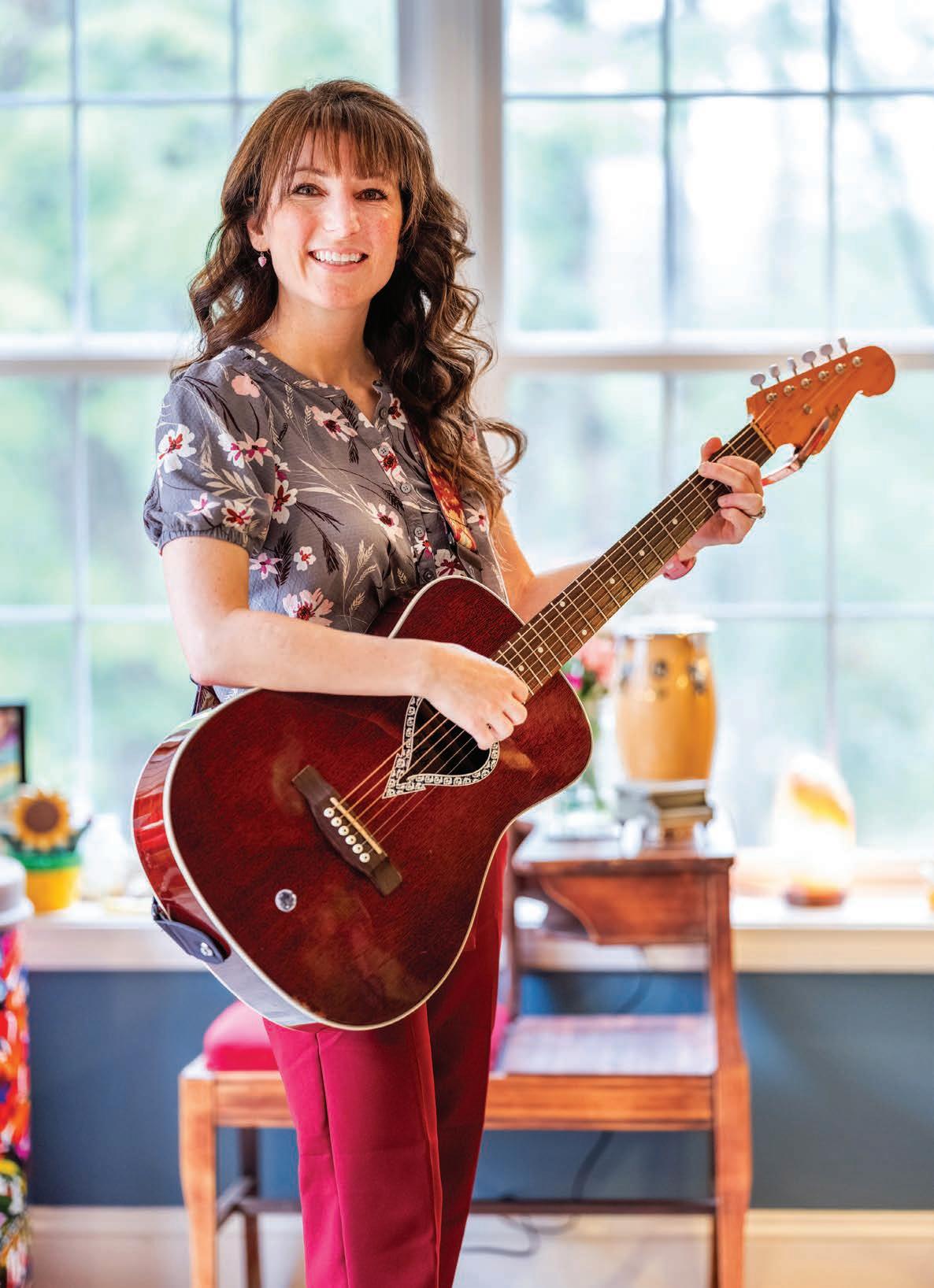
tolerate them in their daily life.
Ferguson recalls working with clients who can’t tolerate hearing whistles.
“Whistles just feel terrible to them,” she explains.
Therapy might start with the client blowing into a tissue, which helps practice making the sound. Ferguson has used the song “I’ve Been Working On the Railroad,” specifically the repeated phrase “Dinah won’t you blow,” and the song’s references to a whistle.
Later on, other tools are built into the therapy.
“Then we’re gonna build in, ‘OK here’s a kazoo.’ So you’re in charge of the sound. You could still just blow air, but if you make a sound, it’ll come out of the kazoo, so it’s slightly amplified, but the client still has control,” Ferguson says.
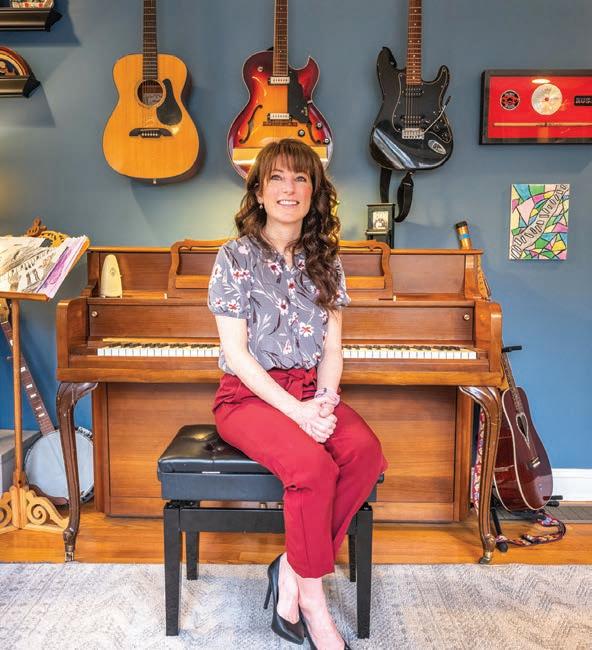
Maybe a couple of months later, the whistle will be introduced.
“Eventually they were able to blow the whistle themselves with some steady rhythms, kind of helping them to feel more grounded,” she says.
Ferguson remembers one client in particular.
“It was a really big success for him; it was exciting. Whistles were very scary — did not feel good. He could not tell me, but
I think physically, it is still good for him to hear whistles. But now he can blow whistles.”
Those with dementia, Alzheimer’s disease, or other memory care needs can benefit in other ways — by hearing songs they know by heart.
“(Music) has all these different neural connections. I have clients who might not know it’s their own family members sitting next to them. They might not have their own affect or personality showing through until they’re singing every word to a song that they know,” says Ferguson.
These familiar songs that they learned sometimes in their teens and late 20s still have a valuable purpose.
“It’ll bring their affect and personality out again so their family members get to see them,” says Ferguson.
Nursery rhymes, for example, have melodies that are so well known that they can promote feelings of safety in a session.
“Those can feel good, and those can feel familiar, and that feels safer, and allows for more to happen in the session,” she says.
Other music therapy organizations in New Hampshire with board-certified music therapists, some with in-house and outreach programs, include the Sonatina Center in Dover, Rhythm and Strings Music Therapy, Nashua Community Music School, and Manchester Community Music School.



But speaking words isn’t the only goal for those in memory care.
”Even if they’re not thinking these things, they’re feeling them. If it helps with word retrieval, for sure. And it decreases agitation, which is big in memory care, because it’s so grounding for them,” says Ferguson.
“It always impresses me how powerful a tool (music) can be,” says Ferguson.
Ferguson’s team of seven boardcertified music therapists serve clients of all ages throughout the state as well as in northern Massachusetts and parts of Maine. Ferguson works with medically fragile children, but each therapist has their niche. Some work with school-age children who have music therapy built into their IEP; some work with hospice patients, and some work in memory care.
The therapists are musicians themselves.
“We’re all highly trained musicians. When we go to college for music therapy,
we are going along right with the music performance in majors, but we’re also doing the therapy and the psych side of things. You need to be a well-rounded musician to be able to support people as a music therapist. We’re using live instru ments most of the time.”
Instruments like the guitar, piano, voice and drums, that allow for a close inter action with a patient, make a difference. Ferguson prefers to play her guitar.
“I tend to use guitar way more than any other instruments, because I can face my clients and really feel like it’s more intimate and I’m right with them, face to face. If I had my piano, I have to turn to the side, and already that feels like I’m not as connected.”
“I have been able to witness so many successes through our services, and I have a great team right now, and they all feel the same way. We really have the best job,” Ferguson adds. 603
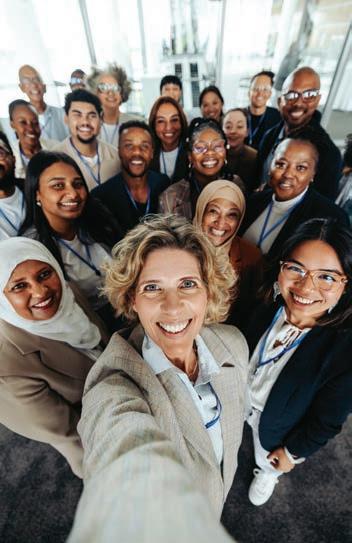

NOT JUST AN ABORTION CLINIC.
Patient-centered, inclusive healthcare for people who value bodily autonomy and reproductive freedom.
Routine gynecological and urological well care · Behavioral healthcare · Abortion care · Miscarriage management · Gender-affirming hormone therapy · STI testing and treatment · HIV testing and PreP · Breast and cervical cancer screening

Comprehensive reproductive, sexual, and behavioral healthcare since 1974.

38 S. Main Street, Concord, NH 603-225-2739 equalityhc.org Join us for our PRIDE 5K Run/Walk June 1!
At NH Mutual Bancorp our values drive a culture of respect, inclusion, and belonging where we embrace the uniqueness that each individual brings forth to our organizations. Values are at the core of who we are; they drive innovation, foster collaboration and a respect for diverse thought and unique experiences. Ultimately, they ensure that individuals feel welcomed and empowered to succeed.
We are committed to dedicating our efforts, including leadership focus and financial investment, to promoting equal opportunity across our work environments and within the communities we serve. Doing so makes us a stronger, more successful, and sustainable organization over the long term.
www.nhmutual.com/careers/

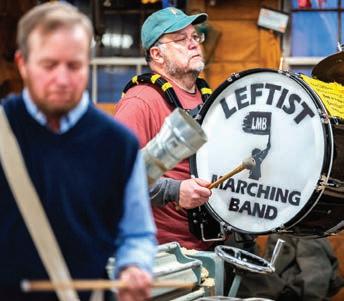
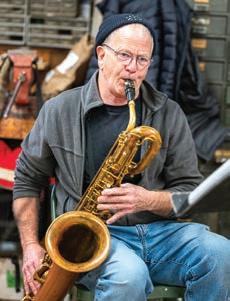
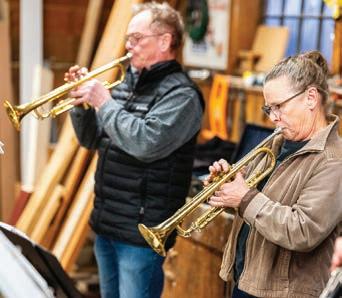
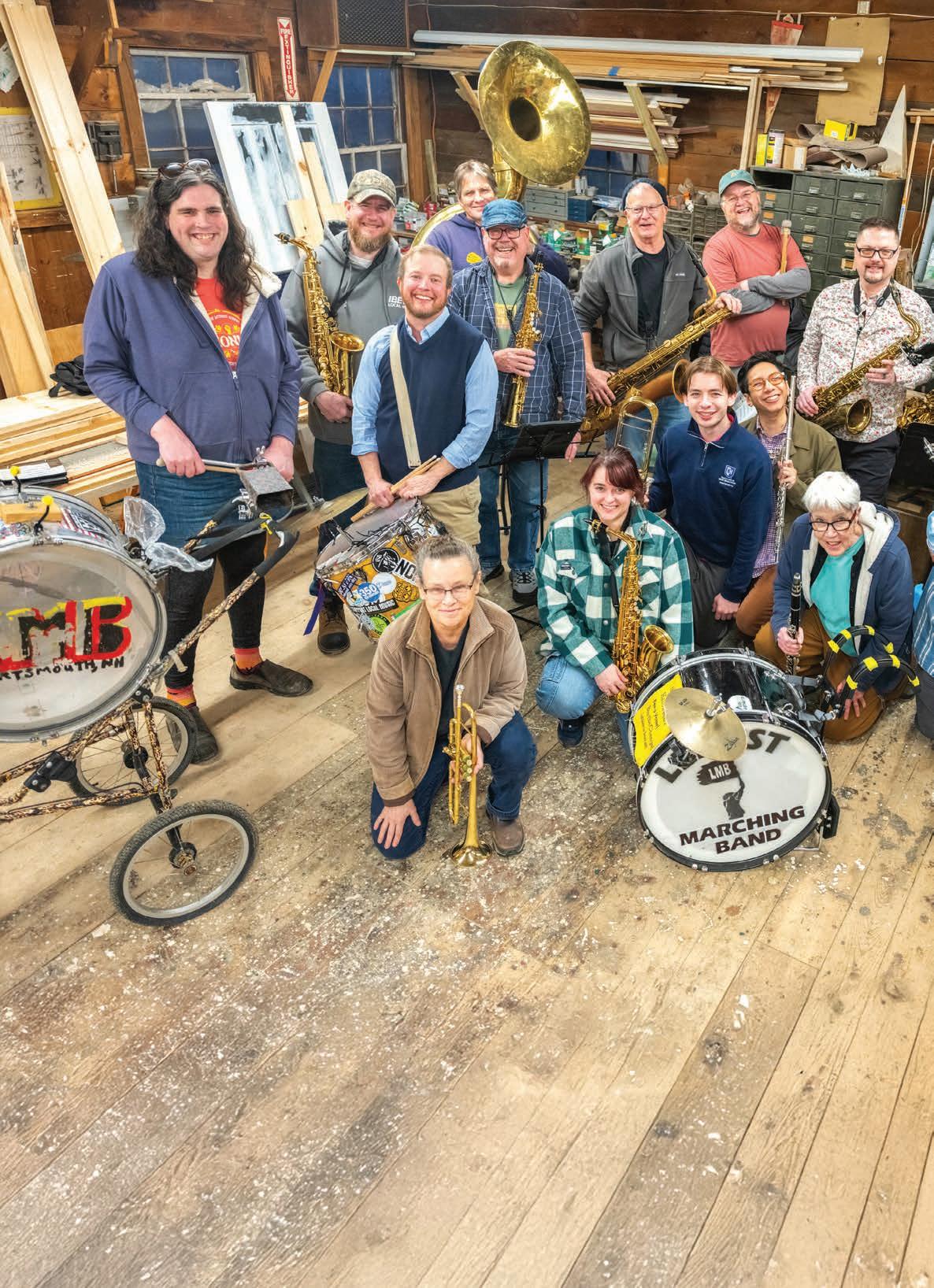

BY CAITLIN ANDREWS

Every Monday at Strawberry Banke, a marching band of all stripes comes together to practice.
There’s no set number to this band, no formal leader. But you cannot say the Leftist Marching Band does not have direction. For 21 years, they have been playing protests and parades, usually those with a progressive inclination. John Mayer said that, from the beginning, their goal has been to inject energy and humor into demonstrations.
“One of our founding members was at some parade and seeing all this support for conservative causes,” said John Mayer, an early bandmember, speaking of the LMB’s founding. “And he was thinking, ‘The left needs a pep band.’ So, he began it, and we’ve continued to be true to that mission.”
Despite its name, the group is open to all political affiliations and claims no particular ideology, instead encouraging its members to “consider all perspectives and think for yourself.” Supported organizations Climate Action Now and LGBTQ+ group Seacoast Outright are listed alongside the Portsmouth Athenaeum and Gather NH. Members say the increasingly politicized nature of those causes makes
their brand of activism more crucial than ever, but need to come with extra precautions.
For one, some group members are careful about putting their names out there, Mayer said. A member was once disqualified from a job because they had been identified as being part of the band. They are encouraged to use “Sharky McGee” as an alias if they are worried about being identified in the press.
The group also participated in de-escalation training this winter to learn how to respond in case of threats. Mayer said they had never done something formal like that before, but “our world today is much different than it was six months ago,” he said. “People might be emboldened to speak out against us in ways that before, they might not have.”
People of all backgrounds and ability levels are welcome to join, and there is no audition or membership fee. Playing a gig is a lot less stressful than standing on a stage, said saxophonist Rebecca Beaulieu, because there is less pressure to perform perfectly.
“We’re all there for the same reasons and enjoy playing together,” she said.
Beaulieu works for a climate nonprofit, but she believes playing music brings a unique energy to activism beyond normal demonstration.
“It’s really easy in the political atmosphere we’re in to feel down about how things are going in the world,” she said. But having a band play during an activist event is “one way to remind ourselves that, even if the work is hard for trying to make a better world, you still have to have fun and bring joy to those things.”
Such a mission draws players from beyond the Seacoast region: Sarah Bennett, a clarinet player from Salem who has played with LMB for 15 years, drives an hour one way to practice. But the relaxed atmosphere draws her in, as well as the lower-stakes environment compared to a more professional band.
The fun is somewhat tinged with worry — Bennett says she’s not too worried about herself as “a little old white lady,” but she worries the band’s diversity might attract negative attention.
“The messages have always been important, and now more so than ever,” Bennett said.
“There’s this ragtag feeling of we’re all in this together,” she added.
On a brisk March evening, about 17 members had gathered in the Strawbery Banke carpentry shop arranged in a circle. People take turns picking the song and leading the group through it. LMB occasionally writes and plays its own music, but set lists often include pop songs like Lady Gaga’s “Born This Way,” or more serious tunes, like the Italian anti-fascist theme “Bella Ciao.”
Mayer takes the lead through the first few songs, conducting while playing the saxophone. One finger in the air cues one section of the band to drop in; two signals to the second half when it is their turn; and with a whoop, a twirl of his finger overhead, and a crescendo of horns, the whole band comes back together. 603
BY SUZANNE LAURENT / PHOTOS BY MICHAEL STERLING
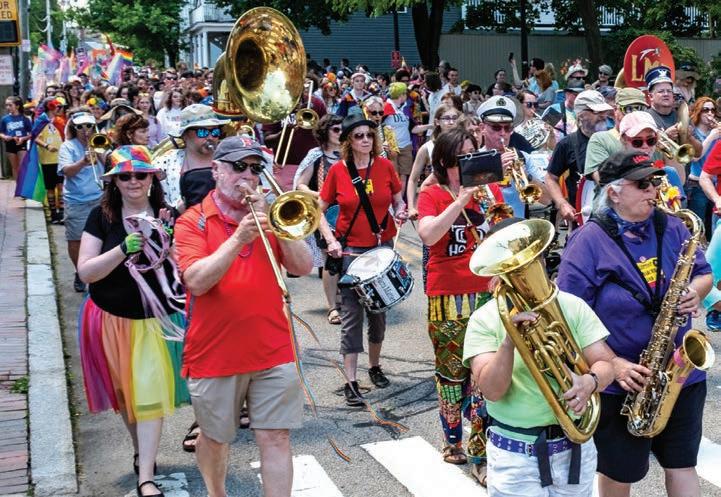
What is that?” my late husband asked as we drove from Peirce Island in Portsmouth after we had walked our dog. The year was 2011, and we had recently moved to Portsmouth.
Just beyond the parking lot was what looked like a local community band. Yet, there was something different. They were kind of a diverse group of adults playing instruments and genuinely looking like they were having fun.
We found out from our Realtor that it was Portsmouth’s own Leftist Marching Band (LMB). We were hooked. We tried to catch them performing in Market Square and playing in parades.
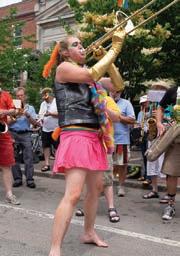
I joined the band in January 2016 as an auxiliary percussionist. My husband died in 2015, and he actually gave me a red tambourine for Christmas in 2014, hoping I’d join the band.
I eventually took up the snare drum after a few lessons at the Portsmouth Music and Arts Center. I also went to a Goodwill store to find some fun hats to wear to gigs.
I’ve been to Montreal, Boston, and many cities and towns in New Hampshire to support causes I believe in — demonstrations against deportation, Moms Against Gun Violence, Black Lives Matter, to name a few.
The LMB is part of a larger scene of street activist bands from around the
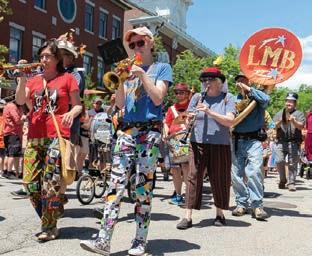
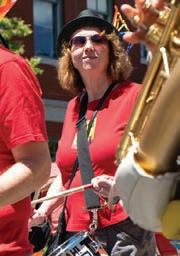
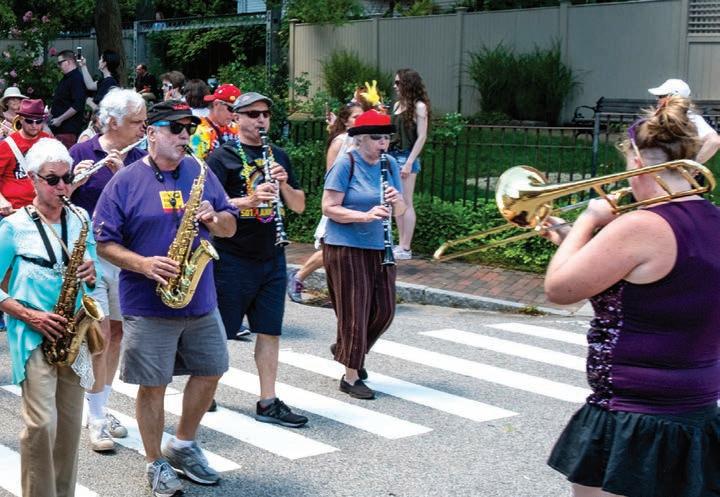
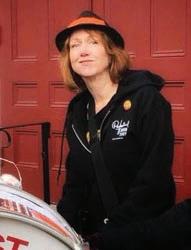
country and as far away as Brazil and France. It was founded in 2004 during former President George W. Bush’s re-election campaign.
The United States had militarily intervened in Iraq, and the division between the anti-war movement and supporters for the war was extreme.
One of the band’s long-standing members said the climate then, as it is today, was extremely vitriolic. LMB wanted to use the marching band tradition to show you could be against the Iraq war and still be patriotic.
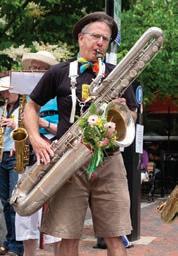
With the current administration, the band is being more proactive in learning how to deescalate any possible confrontations and stay safe.
Each October, LMB participates in the HONK! three-day festival in Somerville, Massachusetts, which includes performances, direct action protests and a parade to Harvard Square in Cambridge.
After attending four HONK! festivals, a deportation demonstration in Montreal and joining with the band in PRIDE parades and the Portsmouth Halloween Parade, I found an eclectic group of people — all with similar values. I haven’t looked back.
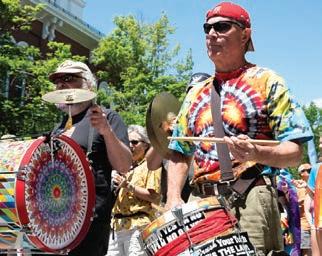
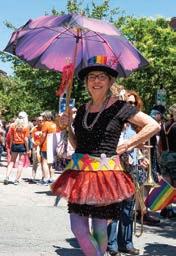

In recent years, law firm McLane Middleton has prided itself on its growing commitment to fair and inclusive hiring practices, especially in elevating women among its staff.
However, managing director John Colucci says the firm’s drive for diversity has been core to its structure for nearly two decades.
“We actually started a long time ago with diversity, prior to me joining the firm,” he said. “I think our first diversity committee was in 2006. We’ve always had it shared with a partner and with a variety of folks from the firm.”
As the years progressed, the internal group became the “Diversity, Equity and Inclusion (DEI) Committee,” following naming conventions used by other companies. But as the climate around the term and its implementation in workplaces has been challenged, Colucci, promoted to his current position in January, found clarifying the firm’s stance to its employees to be a top priority.
The choice was clear: McLane would stand firm in its resolve.
“I sent out an email earlier in February saying we’re staying the course; we’re not changing anything and we’re doubling down,” Colucci said. “I thought it was important to say that, because people are uncertain right now about what’s going to happen.”
That includes the firm’s leadership like
Colucci, who expressed dissatisfaction with the Equal Employment Opportunity Commission’s recent action of sending letters to 20 law firms nationwide on March 17 to investigate their DEI-related practices.
“It’s almost like having a personal trainer that’s ensuring you think and act all the time to make sure that you’re looking at all of our underrepresented colleagues.”
— John Colucci
“I think that is a real shame, because if there’s one profession where it’s difficult (to enter) coming from an underrepresented background and having difficult financial circumstances, it’s law,” Colucci said.
Besides, he said he believes attorneys perform their jobs better and develop more creative approaches to their cases with a diverse team. Workplace diversity can also allow legal firms a broader client
base, reaching people who benefit from having representing attorneys with the same or similar backgrounds.
Colucci has learned about these firsthand over the years. In one case, a New Hampshire McLane office had a client seeking legal assistance who spoke most proficiently in Farsi, a Western Iranian language. One of the firm’s attorneys was able to accommodate.
“We happen to have a partner who speaks Farsi, so she was able to help that particular client in a very concrete way, and they felt very comfortable speaking with her and sharing their issues,” Colucci said. “It was time-sensitive, and there were cultural barriers, too, that our partner could (address) since she was born in Iran.”
On its website, McLane says it recognizes that “New Hampshire’s geographic location in northern New England can make meeting some diversity goals challenging,” driving the business to get involved with organizations centered around diverse communities to seek out potential applicants. Among them are the New Hampshire Women’s Foundation, Vote Hispana, the Latino Summit and Girls Inc.
That drive led McLane to become the first law firm in New Hampshire to receive Mansfield Rule Certification, which it achieved in 2023 and was recertified last year. The Mansfield Rule and its certification were developed in 2016 by the San Francisco-based consulting organization
McLane Middleton was designated a finalist for the Diversity Workforce Coalition’s 2024 DEI Award and honored as a “Diversity Champion” at the organization’s annual Workforce DEI conference last March.
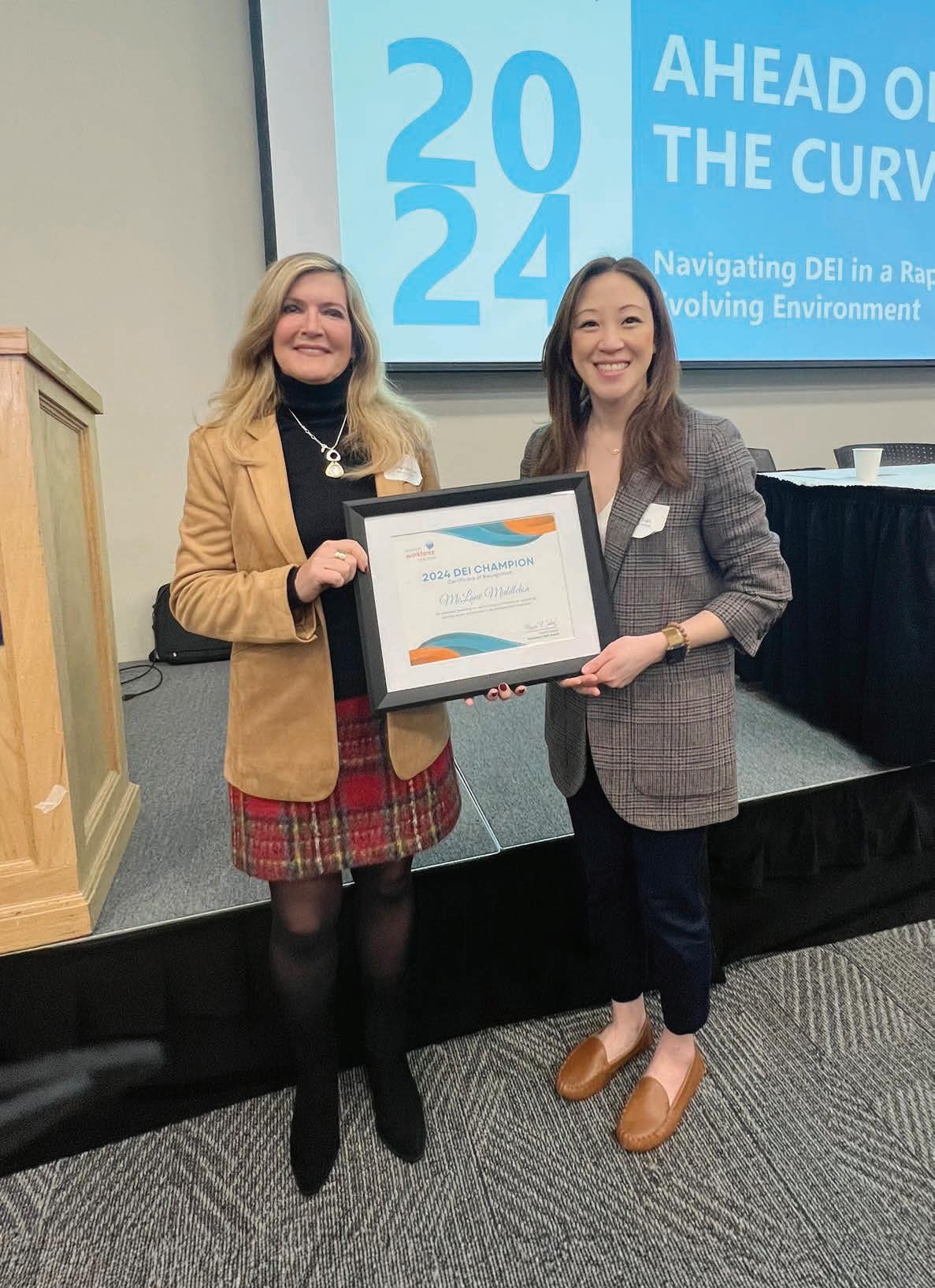
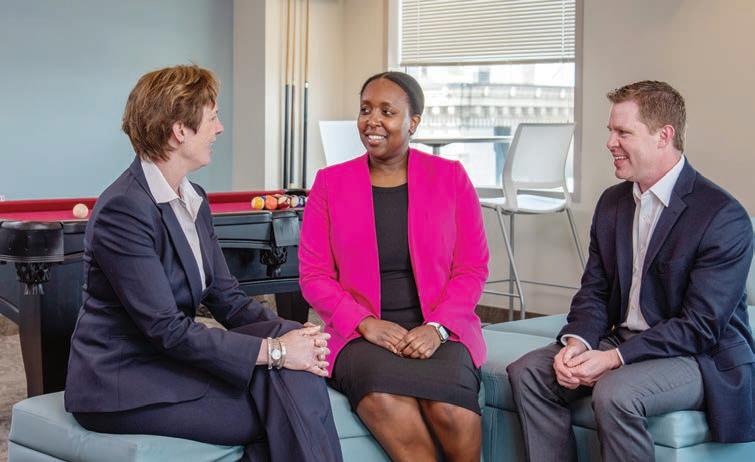
Diversity Lab, which works with lawyers and firms to create a more equal and inclusive legal profession.
Under the rule, law firms are urged to consider at least 30% women, people of color, LGBTQ+ people, and people with disabilities for attorney and partner positions, leadership and governance ranks and client pitch opportunities within the firm, according to McLane’s website.
This is not to be confused with setting a specific quota, in which the certification would require firms to have 30% of their staff come from an underserved background.
Instead, by compelling firms to have 1 in 3 important functions held or managed by a diverse candidate, the Mansfield Rule seeks to bring about greater diverse representation in law by disrupting biases in the field.
“It’s almost like having a personal trainer that’s ensuring you think and act all the time to make sure that you’re looking at all of our underrepresented colleagues,” Colucci said. “This rule requires us to go outside the box and think of others, and it’s worked out well.”
For its growing efforts to attract and retain diverse employees and attorneys, McLane was designated a finalist for the Diversity Workforce Coalition’s 2024 DEI Award and honored as a “Diversity Champion” at the organization’s annual Workforce DEI conference last March. The Manchester-based alliance of Granite State businesses offers education, training
and networking opportunities related to diversity initiatives.
Qualifying companies are those that have visibly made strides to increase DEI at work, have a senior leadership team to push for inclusive efforts, have a “culture change” approach to diversity — embedding such principles within the core of the company — and actively recruit and advance diverse staff, according to the coalition’s site.
Colucci credits one factor in McLane’s recognition to its participation in the New Hampshire 1L Diversity Internship Program, in which McLane and other Granite State firms seek diverse law school students for paid summer associate positions in their offices after their first school year.
“The goal is to have diverse candidates get their foot in the door at a law firm early on,” he said. “One of those folks has
joined us after graduation and has been here two years.”
Because McLane also has Massachusetts offices in Boston and Woburn, Colucci added that the firm has a separate $50,000 endowed scholarship fund with Suffolk University Law School for students from historically Black colleges and universities.
As McLane looks toward the future, Colucci said that equitable recruitment is key, including ensuring that women employees feel heard, understood and confident in their abilities within the firm. He pointed to a long-running initiative that two women McLane partners created, “What’s Her Story?” as a vehicle through which women’s equity has been central to that mission.
The program was first an in-person event at its 2012 launch, and it now also runs as a podcast. It invites women business leaders and entrepreneurs in New Hampshire and Massachusetts to share their stories, challenges not faced by male peers and tips for finding career success.
“I think we’ve made great strides on gender issues,” Colucci said. “Half of our management committee is female, and we’re making good strides as far as making sure that female lawyers feel welcome and have whatever they need to make it to partner.” 603
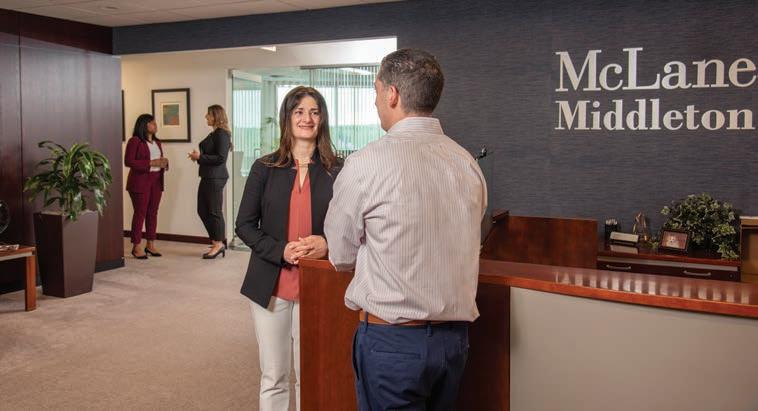




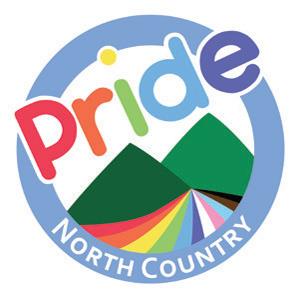


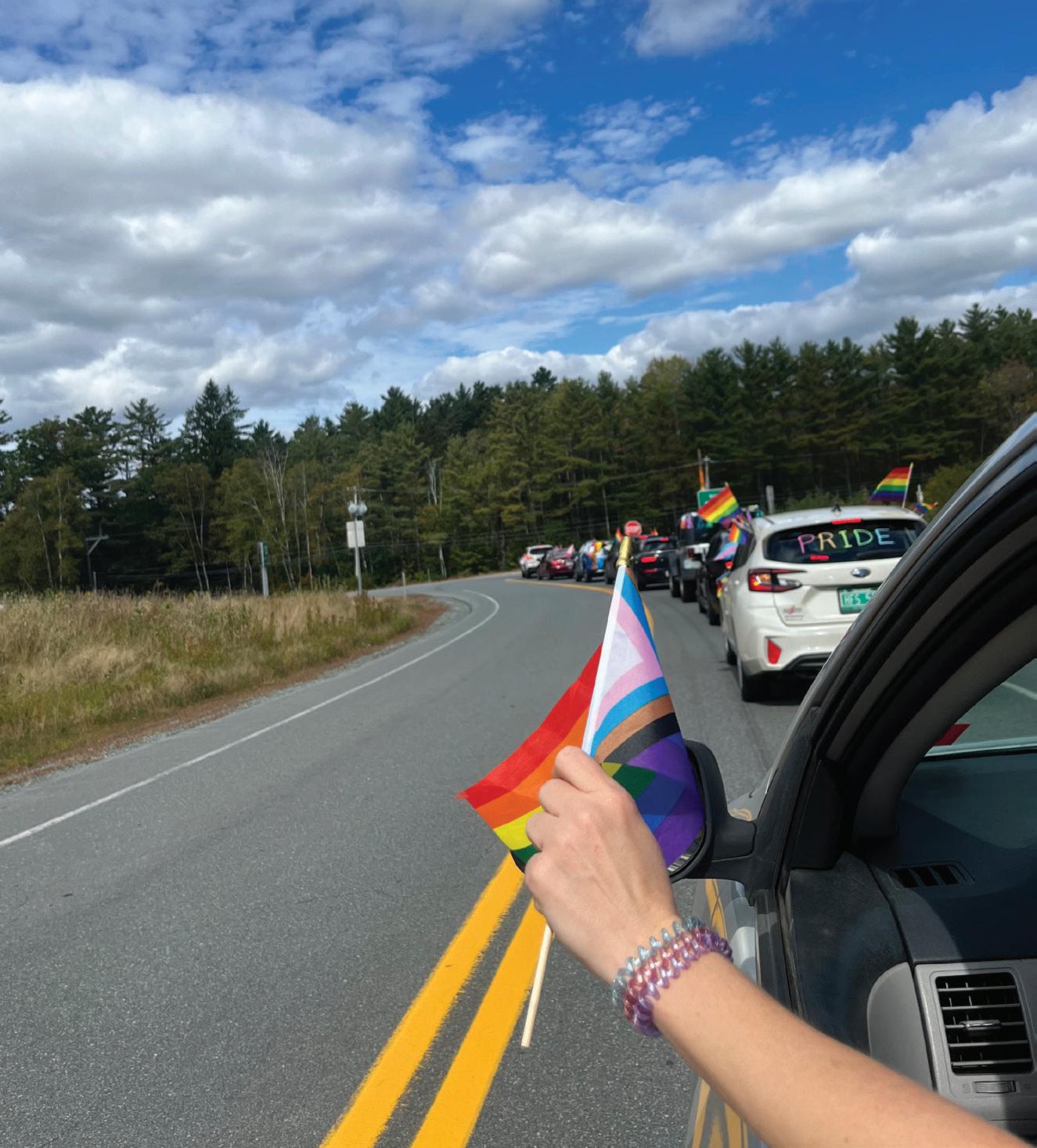
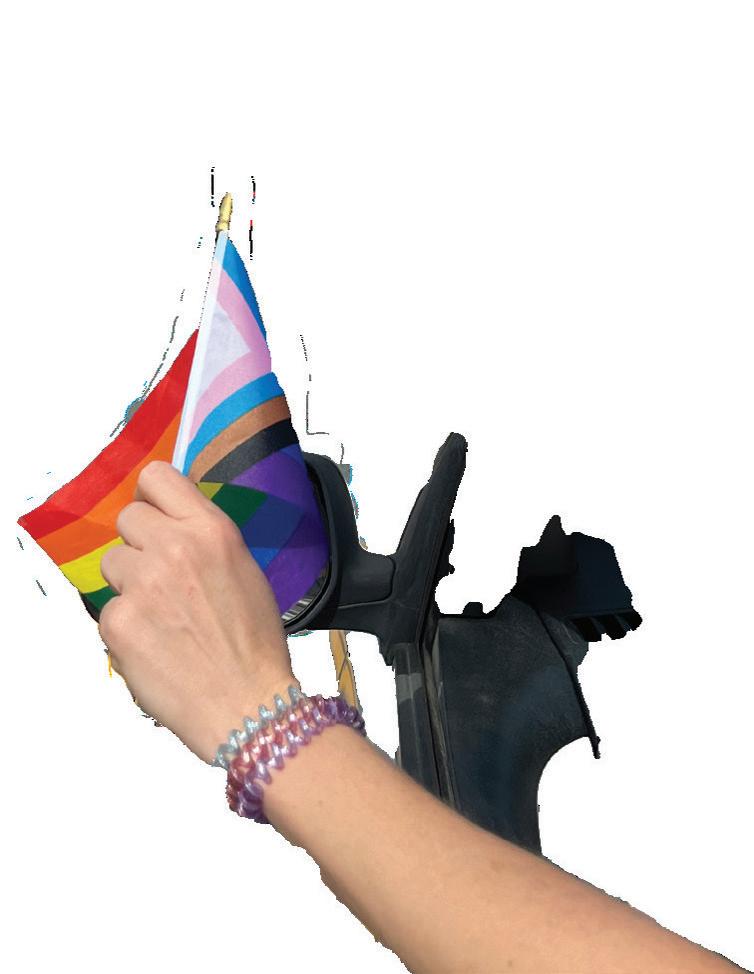

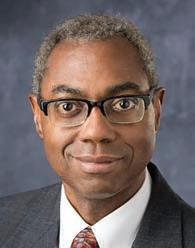
BY JAMES MCKIM
New Hampshire’s diverse musical landscape, from the classical strains of the New Hampshire Music Festival to the lively tunes of the White Mountain Boogie & Blues Festival, demonstrates how music transcends cultural boundaries.
The state’s commitment to musical diversity is evident in events like the Nashua Multicultural Festival, where performances range from traditional songs to contemporary dance, uniting residents and visitors alike. Yes, music and dance are important ... but also, they’re way more fun than doing taxes!
In the White Mountains and beyond, dance becomes a universal expression of joy and cultural heritage. The NH Highland Games & Festival, held annually at Loon Mountain Resort, showcases Scottish dance traditions, bringing together people of Scottish descent and enthusiasts from various backgrounds. This celebration of movement and music creates a shared experience that bridges cultural divides.
We know that one barrier to living in harmony with diverse people is unfamiliarity. Music and dance events in New Hampshire serve as powerful tools for breaking down social barriers. The Prescott Park Arts Festival in Portsmouth exemplifies this, offering free admission to a diverse array of performances, from ballet to rock bands, creating an inclusive space where people from all walks of life can learn about and enjoy the arts together.
As New Hampshire becomes more diverse, our summer and fall festivals play a crucial role in building community spirit. Events like the Hillsborough Balloon Festival & Fair, the Manchester We Are One Festival, and the Concord Multicultural Festival combine music, dance and other activities
to create a vibrant atmosphere where strangers become friends, united by their shared experiences.
The state’s music festivals serve as platforms for cultural appreciation.The Keene Music Festival, held annually during Labor Day weekend, features local and regional artists representing New Hampshire’s diverse talent pool, fostering understanding and respect among different communities.
A meta-analysis of 400 studies published in the American Psychological Association’s November 2023 issue revealed that music improves immune system function and reduces stress. From the therapeutic rhythms of traditional Abenaki music to the empowering melodies of contemporary New Hampshire artists, music and dance in the Granite State offer healing and strength to diverse communities. So, skip the gym and join a polka band! Just kidding ... mostly. But seriously, it’s good exercise.
While New Hampshire may not have large urban centers, its inclusive spirit is evident in events like Portsmouth Pride, where music and dance play a significant role in celebrating diversity and promoting acceptance. Organizations such as NH Outright sponsor events that include the arts and music as a way for LGBTQ+ people to express themselves and to be seen in a positive light.
The New Hampshire Music Festival, with its 73-year history, brings together exceptional artists from across the United States, creating a platform for cultural exchange through classical music. This festival, along with others like the Northlands Music & Arts Festival, showcases how the state embraces both traditional and contemporary musical forms.
As we reflect on the unifying power of music and dance in New Hampshire, it’s clear that these art forms have the potential to create lasting connections and foster understanding among diverse communities. Now, more than ever, it’s crucial for each of us to actively seek out and share these experiences. Here’s how you can get involved:
1. Attend local events: Make it a point to attend music and dance events in your area, especially those showcasing diverse cultural traditions.
2. Learn a new dance style: Challenge yourself to learn a dance form from a different culture. Many community centers and dance studios offer classes for beginners.
3. Share your musical heritage: If you have a unique musical or dance tradition, consider sharing it with others through performances or workshops.
4. Support local artists: Attend concerts of local musicians and purchase their music to support the vibrant arts scene in New Hampshire.
5. Organize community events: Work with your local community center or school to organize multicultural music and dance events.
6. Use social media: Share your favorite music and dance experiences on social media, using hashtags like #NHMusic or #DanceNH to connect with others.
7. Volunteer: Offer your time and skills to help organize music and dance festivals in your area.
8. Educate yourself: Take time to learn about the history and significance of different music and dance styles from
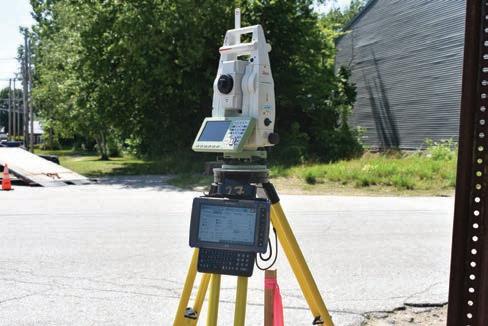
around the world. Sources such as your local library or NH PBS can open a window into a world of different cultures and genres.
From the serene lakes of the Lakes Region to the majestic peaks of the White Mountains, New Hampshire’s natural beauty provides a stunning backdrop for its diverse music and dance events. These gatherings not only entertain but also serve as powerful catalysts for unity, understanding and celebration of the state’s rich cultural tapestry.
As we look to the future, let’s commit to actively seeking out, participating in and sharing these transformative experiences. By embracing the power of music and dance, we can create a more connected, understanding and harmoni ous New Hampshire — one rhythm, one step at a time.

So, let’s dance to the beat of unity and sing the song of diversity. The stage is set, and the music is playing — it’s time for all of us to join in and create a more vibrant, connected New Hampshire through the universal languages of music and dance. Get out there and experience the music and dance of New Hampshire!
Remember, every time you engage with music and dance from diverse cultures, you’re not just enjoying an art form; you’re building bridges, fostering understanding and contributing to a more inclusive community. And if you see me on the dance floor, please don’t judge my questionable moves. I’m doing it for the culture, and the exercise, and the fun! 603


BY RUBY SHABAZZ
Being an R&B artist in New Hampshire has been challenging but also fulfilling. I grew up in the inner city of Roxbury, Mass., where I spent a lot of my childhood years listening to my parents’ Motown vinyl collection.
I would take Stevie Wonder’s “Songs in the Key of Life” or Michael Jackson’s “Off the Wall” album and play them on my Fisher-Price record player. I was in love with soul music, but I didn’t know hip-hop yet, as it was still a burgeoning art form.
In my pre-teen years, R&B and pop music were starting to show the influence of hip-hop with songs from Mariah Carey and Whitney Houston, who were embracing the art form, and I knew their songs by heart. In my late teens, the mix of hip-hop and R&B was undeniable with artists like Mary J. Blige and Lauryn Hill playing on the radio, which made a huge impression on my style today.
I attended college at UMass Lowell, where I was introduced to different forms of music such as rock and alternative, and I got into artists like Fiona Apple and Alanis Morissette. I loved their angst and vulnerability, and their styles ended up having an influence on my writing later in life. I started performing with a live band in college but stuck to my R&B roots. I thought nothing of performing R&B songs because it was a lot of what I knew, and the musicians I played with also knew the music.
“I have been recognized for my music not just in New Hampshire but in New England, and that has special significance as a Black woman. It’s important to feel seen and heard and to know that my voice and point of view matter.”
fewer musicians knew or performed the R&B and hip-hop music that I grew up on and was familiar with, so that became a challenge. While performing, I’d always have someone ask me to sing a song in a genre that I wasn’t familiar with. I always tried to be open-minded and tasked myself with learning different genres of music to fit in, but I struggled with feeling true to myself. I used to feel self-conscious about it. Now I have come to realize that people should understand that different people grow up differently. That includes music, culture, food, etc. The good thing is that it forced me to build a repertoire of music and be well rounded as a performer. There came a point when I even struggled with wanting to perform my own original songs versus singing cover songs. Writing music became a journey of finding myself, and I had to dig a little deeper and stick with my conviction to sing original songs that have meaning to me.
When I moved to Nashua, NH, I found that
At first, I experimented with dance music before I released the R&B and neo-soul sound that I am known for now, realizing that I had to tell my own truth and be vulnerable. That took a slower, more serious approach. I started to study the greats in R&B as well as the early jazz singers such as Billie Holiday, Ella Fitzgerald and Etta James. I studied their melodies, delivery and cadences, then incorporated some of that style into my own sound.
Staying true to my roots and putting in all the hard work has paid off. Recently, I have been recognized for my music, not just in New Hampshire but in New England, and that has special significance as a Black woman. It’s important to feel seen and heard and to know that my voice and point of view matter. In 2024, I was recognized by the New England Music Awards as the R&B Soul Artist of the Year! I was also recognized by the New England Songwriters Competition in the category of Hip Hop/ Urban and R&B for my song “Thank You.” It was such an honor, because I felt appreciated and supported where I didn’t always feel that way in the past.
It is imperative for me to recognize other organizations that are highlighting Black voices and for me to connect with the Black communities in the area, especially with Black women. I have met so many important leaders and peers in organizations like Black Women in New Hampshire Social Club, the We Are One and the Concord Multicultural Festival.
Connecting with other Black women and organizations has allowed me to learn so much about myself and my history. I’ve learned that there are other people of color in New Hampshire who are using their voices to be heard and who are making history right now.
There are still so many people of all races and backgrounds that I have yet to meet, and I’m looking forward to doing so through music. It’s all about staying true to myself and knowing that my music will connect with the right people. 603

As part of that commitment, we’re proud to be certified in the Mansfield Rule - a national initiative aimed at closing the diversity gap in the legal profession.




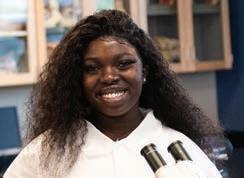
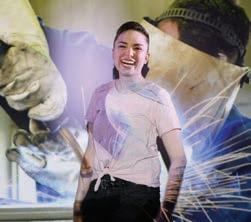


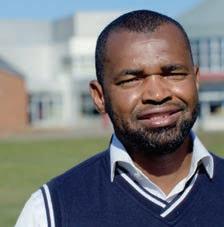
Join Positive Street Art for a Monthly Art Social, where creators of all ages can connect, create and share! Bring your own supplies to work on your craft, or simply enjoy networking with fellow local artists. Let’s inspire each other and grow our creative community! Upcoming sessions are held at 6 p.m. on May 21, June 18 and July 16 at the studio. Learn more at positivestreetart.org.
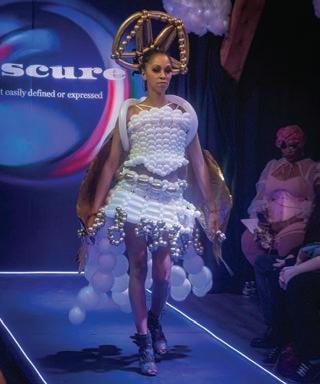
To submit multicultural or changemaker events for the next issue, send them to editors@603diversity.com.
COMPILED BY YASAMIN SAFARZADEH / COURTESY PHOTOS

BLM New Hampshire and the Black Heritage Trail of NH invite you to a night of radical remembrance, communal joy and unapologetic Black liberation. This Juneteenth, we’re not just celebrating freedom; we’re reclaiming space, honoring ancestors who fought to break chains, and gathering in the spirit of resistance that still fuels our movement today. Join us for an evening rooted in legacy and love with food, live performances and the stories they tried to erase. This is more than a dinner; it’s a declaration that Black lives, Black history and Black futures are sacred, and we will never stop fighting for them. Dinner is $45. For more information about this event and other Juneteenth programs or to purchase tickets, email info@blmnh.org or visit blackheritagetrailnh.org. MAY 10
Cultural contributors Positive Street Art will host its second annual OBSCURE Runway Show. Highlighting fashion designs from cutting-edge local and indigenous designers, the show will be held May 10, 6 to 10 p.m., at the PSA Studio, 48 Bridge St., #3F in Nashua. Last year tickets to this star-studded event sold out fast. This year, the hype is real and they’re expected to go just as quickly. Tickets and sponsorships can be found at www.zeffy.com/en-US/ticketing/ obscure--2025.
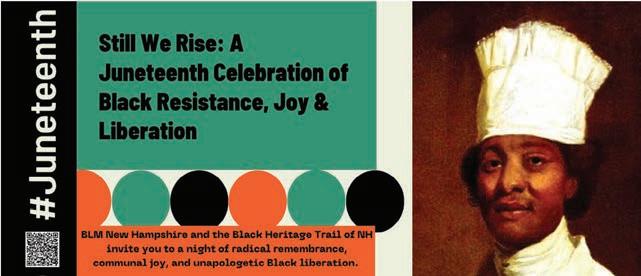
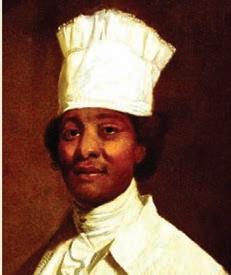
Monthly community meetings for discussions on Education, Air Monitoring, Healing Circles for Adults and Teens, the Economic Justice Committee and more. Gatherings take place in the evening both virtually and in person. NAACP Manchester seeks to increase community bonds and build networks within our neighborhood. Check out naacpmanchesternh.com for more information or call 603-215-7044.
MAY 15
Join the NH Council of Churches online from 6 to 8 p.m. in conversation to explore, explain and address Christian nationalism’s impact in the state of New Hampshire. This Zoom event, the second in a three-part series, seeks to explain the origins and impacts of Christian nationalism, particularly in the context of New Hampshire. Co-hosted by the NH Council of Churches, Manchester NAACP, NH Outright, Engage, NH Peace Action, 603 Equality, Open Democracy, and American Friends Service Committee. Please note, the internet connection will be hard-wired to the computer to avoid connection issues. Register online at nhchurches.org/2-countering-christian-nationalism-community-conversation.
ONGOING
Woman entrepreneurs gather online every second Tuesday of the month from 12 to 2 p.m. for a supportive, structured co-working session to boost your confidence, focus and productivity. Focusing on mindfulness, learning and somatic techniques — grounding yourself with guided, woman-centric practices to reduce stress, enhance focus and align with your business goals. Learn to work alongside others in a supportive space, tackling tasks with built-in accountability and facilitator support. Find community, practical tools, peer support, dedicated work time and more. The Empowered Business Practice monthly community to work in a space where you can succeed as your full self. EBP is offered on a sliding scale. Please choose whatever price feels best to you. Payment is per session. Register at firstregulate.com/store/p1/Empowered_ Business_Practice%2C_May_2025.html.


Join in at HopKnot on the third Sunday of each month at 11 a.m. in downtown Manchester for Drag Brunch with Big Gay Events! Each month brings a new and exciting cast of New England’s best Drag Talent! Sample some brunch specials, such as breakfast sandwiches and mimosa pitchers, while you enjoy the show. Learn more at hopknotnh.com.
Local nonprofit Queerlective, which creates and promotes events and environments for queer, BIPOC and other underserved communities, host a variety of ongoing digital social events. A biweekly queer book club meets on Mondays over Zoom at 6 p.m. Queerlective’s Queer Dungeons and Dragons group is also accepting rolling applications and is in particular need of dungeon masters. Newsletter signups and further information on queerlective.com/pages/events.



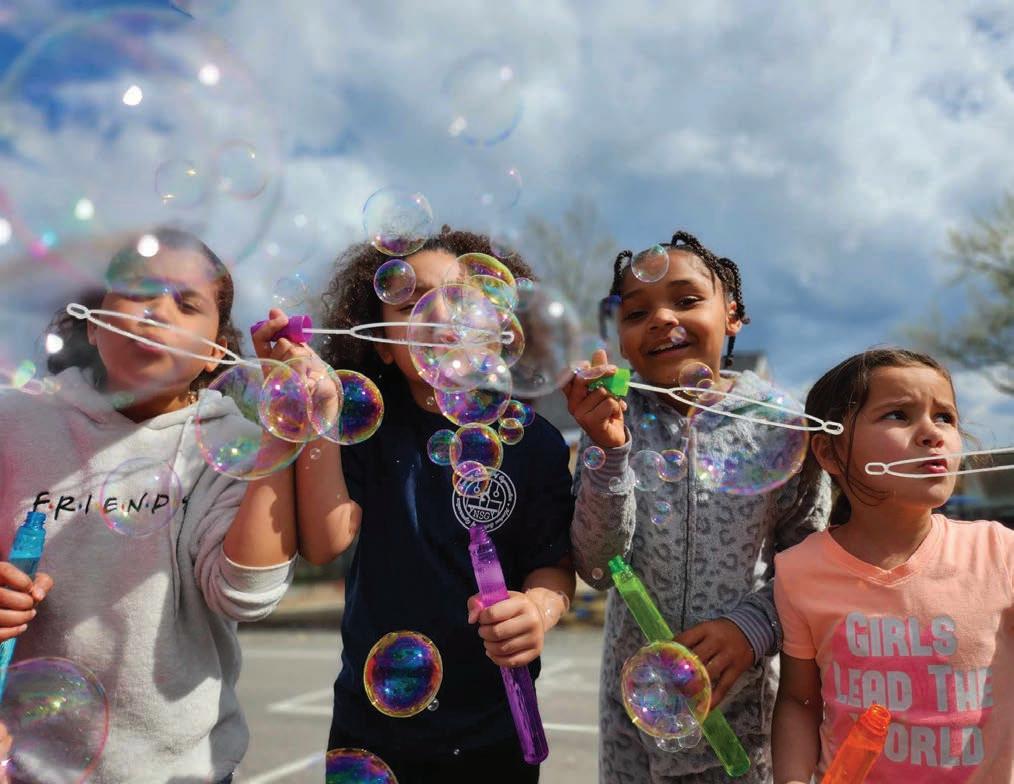

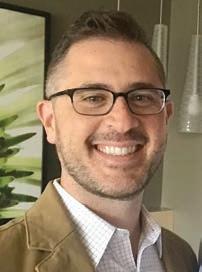
Yours in Health, The Care You Deserve Empower Medical, based in New Hampshire, is Dr. Bobby Kelly’s virtual telemedicine company that enthusiastically welcomes new patients seeking compassionate care in a variety of areas, specializing in LGBTQ+ medicine and sexual health. Bobby Kelly, MD, MPH, FAAFP empowermedpllc@gmail.com www.empowermedi.com 978-242-7799
Sanborn Solutions is your go-to source for LGBTQ+ diversity and inclusion support. Through training and consulting, we can help your organization enhance its LGBTQ+ cultural competency and best practices.
Sanborn Diversity Training Solutions www.sanbornsolutionsllc.com 603-434-0068



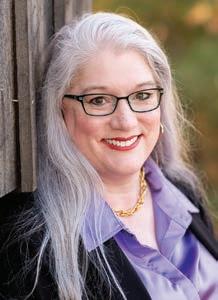

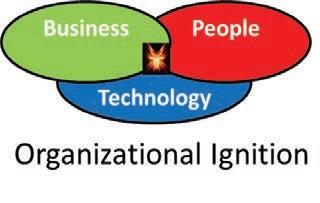
Organizational Ignition helps organizations reach and sustain their ignition point through the integration and alignment of business processes, people and technology. Work with senior management to implement efforts that leverage strengths, eliminate weaknesses, capitalize on opportunities and minimize threats. Organizational Ignition, LLC www.organizationalignition.com 603-540-3988
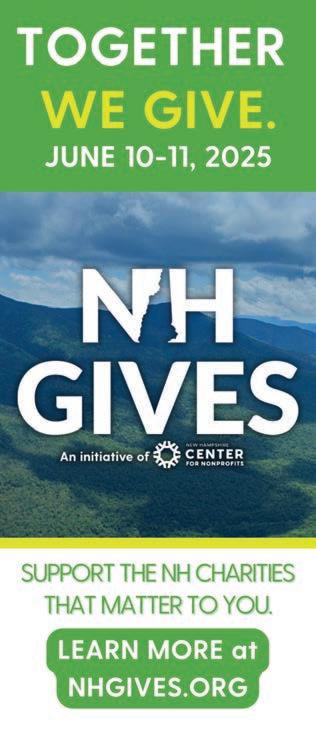
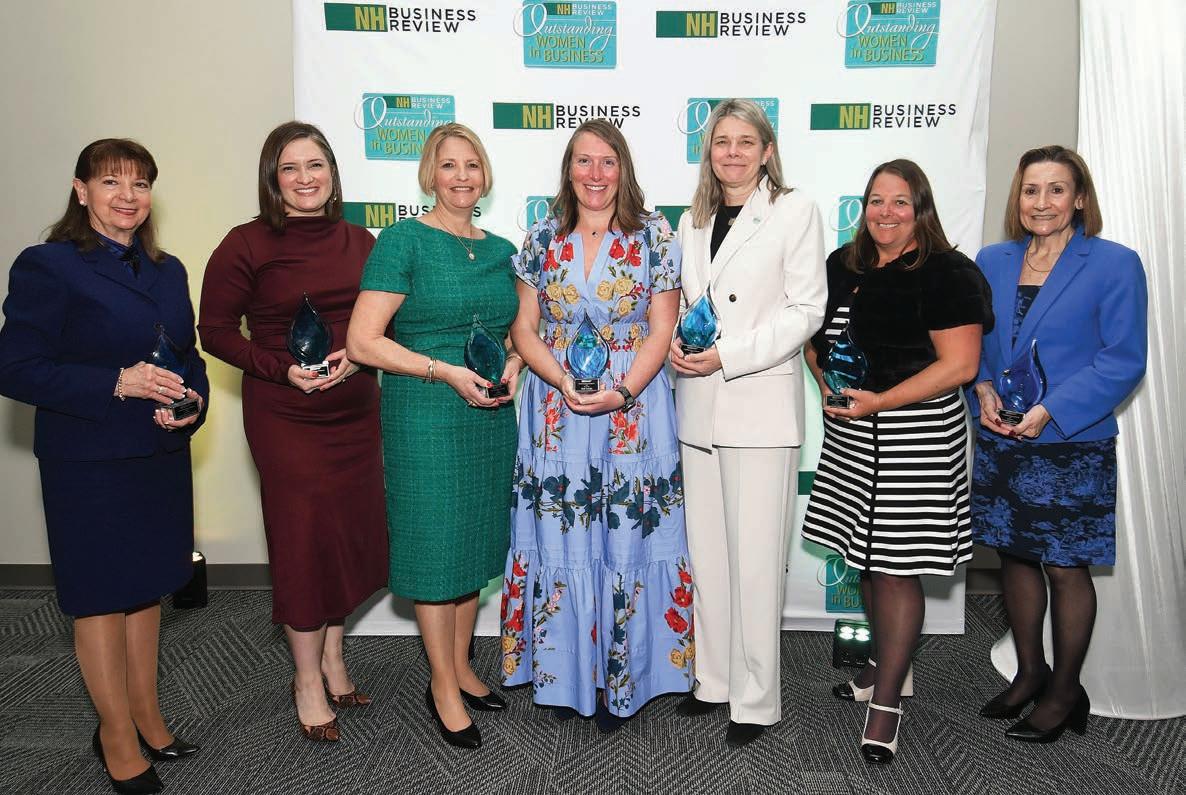












On April 3, NH Business Review had the pleasure of hosting the Outstanding Women in Business Awards at Southern NH University. The Outstanding Women in Business Awards, founded in 2007, celebrate New Hampshire women who have excelled, not only in their professional lives but also as leaders and role models in their communities.
This year’s honorees included Jennifer Gilkie of Dartmouth Health, Sarah Davis of Consolidated Communications, Laurie Beth Pliakos of Instride Health and UNH Franklin Pierce School of Law, Beth Slepian of Granite VNA, Kate Luczko of HealthForce NH, Kelly Cohen of Cohen Closing & Title, Dominique Rust of Catholic Charities and Susan Martore-Baker of Cambridge Trust Wealth Management.
Southern NH University President Lisa Marsh Ryerson gave a special address at the event. Ryerson leads the largest nonprofit provider of higher education in the U.S., serving more than 200,000 learners worldwide.
Interviews with each of the honorees can be found online at www.nhbr.com/category/ outstanding-women-in-business. 603
